2024-2025 Graduate Catalog
| | | The STEM Education PhD program helps address the national shortage of essential STEM educators and the need for better STEM education teaching practices. Doctoral students gain in-depth knowledge, robust interdisciplinary research skills, and a variety of practical experiences. The STEM Education PhD is currently offering concentrations in mathematics education and science education. You will develop the knowledge and skills needed to: - reconstruct, appropriate, and develop mathematical and scientific knowledge
- explore approaches that emerge from the study of the research literature
- write original research that represents your own contribution to knowledge
- use critical-thinking skills to deal with transformation of knowledge
- formulate and design solutions to complex educational problems
Degree requirements- 18 credits of introductory coursework to develop your knowledge of research tools, methodologies and theories
- 18 credits of preparatory coursework that refines and focuses your understanding of the research process
- 36 hours of doctoral work, 12 of which are doctoral coursework and 24 credits of dissertation research
Your research projects involve real-world situations ranging from local schools to higher education departments and other formal and informal learning settings. Your advisors will work with you as you conduct, publish, and present your own research throughout the program. Doctoral students can explore questions about how to: - improve STEM education at the K-12 level
- promote better learning in STEM fields
- engage more K-20 students in STEM-related fields
- prepare teachers to better teach STEM content
- develop materials to support teaching and learning in STEM fields
Kaput Center for Research & Innovation in STEM EducationUMass Dartmouth has a long-standing tradition of leadership in STEM with its nationally renowned Kaput Center for Research & Innovation in STEM Education . The Kaput Center fosters a spirit of innovation among the faculty, graduate students and educational and scientific institutions, industry, and federal agencies. Major Required Core- STM 679 - Developing Research Skills, Part 2 Credits: 3
- STM 680 - Frameworks for Research Analysis Credits: 3
- STM 681 - Developing & Implementing STEM Environments Credits: 3
- STM 697 - Authentic Learning (Internship) Credits: variable; 3.00 to 9.00
- STM 774 - Dissertation Research Credits: variable; .00 to 24.00
- STM 675 - Introduction to Qualitative Methods Credits: 3
- STM 676 - Intro to Quantitative Methods Credits: 3
- STM 677 - Theories of STEM Learning Credits: 3
- STM 678 - Developing Research Skills Part I Credits: 3
Required Concentration Course- STM 601 - Introduction to Mathematics Education Research Credits: 3
- STM 623 - Mathematics Education Research Seminar I Credits: 3
- STM 624 - Mathematics Education Research Seminar II Credits: 3
Other/Elective Course ChoiceTotal Courses Required (5) - STM 796 - Directed Study Credits: 3
- STM 797 - Advanced Authentic Learning (Internship) Credits: variable; 3.00 to 9.00
- STM 682 - Development of Theory Credits: 3
- STM 690 - Special Topics in STEM Education Credits: 3
- STM 777 - STEM Education Reform in a Political Context Credits: 3
- STM 790 - Advanced Special Topics in Math Education Credits: 3
- STM 795 - Advanced Independent Study in STEM Education Credits: 3
- Request info
- Majors & Degrees
- Prospective Students
- Current Undergraduate Students
- Current Graduate Students
- Online Students
- Alumni and Friends
- Faculty and Staff
STEM Education - Master's and DoctorateAvailability : Gulf Park, Hattiesburg and Online Options Why choose a graduate degree in STEM Education?The Center for STEM Education provides masters and doctoral level programs in STEM Education, as well as a new graduate certificate option. Our students learn to conduct empirical research studies examining a variety of areas including but not limited to K12 STEM classroom practices, teacher development, STEM learning and student success, curriculum design, technology integration, and informal science learning outside the traditional classroom. We provide research assistantships for five graduate students annually to work alongside and support our professors in their research programs. Funding supports full tuition and provides a stipend. We believe geography or other personal conditions should not limit learning, and therefore always offer a virtual option for all classes.  Request info Apply Learning OpportunitiesThe STEM graduate certificate is available for anyone involved in education at the K12, college, or informal/outreach level who wants to join our community of practice to enhance their reach and effectiveness. Students earn the certificate after taking five Center for STEM Education courses, with tracks offered for those focusing on academia, K12, or community-level educational paths. The M.S. program provides the STEM content and pedagogical course work necessary to meet standards for advanced secondary teaching certification, to teach at the postsecondary level (e.g. community or junior college, college, or university), or to work as an informal educator. M.S. graduate students will develop both broad and deep content knowledge by taking courses from STEM professors across the university and will develop and practice basic educational research, statistics, and STEM education knowledge. The Ph.D. program provides the STEM content, pedagogical course work, STEM education research courses, research opportunities, and outreach experiences to make career advancements, become university professors, and conduct original research in formal and/or informal STEM education. Ph.D. graduate students will develop both broad and deep content by taking courses from STEM professors across the university, and develop and practice advanced educational research methods, statistics, and STEM education knowledge by taking courses from STEM education professors and social scientists across the institution. Doctoral candidates will work with their committee members to design and conduct original and publishable research in STEM education. For questions, please contact Dr. Julie Cwikla at 601-266-4739 or via email at Julie.CwiklaFREEMississippi . Program Advisors: Dr. Maria Wallace Graduate Certificate Coordinator Maria.WallaceFREEMississippi Dr. Kendrick Buford Masters Program Coordinator Kendrick.BufordFREEMississippi Dr. Rachel Gisewhite Doctoral Program Coordinator Rachel.GisewhiteFREEMississippi Availability | Degree Plan | Availability | | Hattiesburg, Gulf Park, Online | | Hattiesburg, Gulf Park, Online | | Online 100% | Center for STEM Education Hattiesburg Campus - 118 College Drive 5087 - Johnson Science Tower, Room 314 Email stemedinfoFREEMississippi Phone 601.266.4739 Fax 601.266.6145 - Science or Math Teacher
- Informal Science Educator
- College or University Professor
- Science or Math Supervisor
- Wolff-Micheal Roth, Ph.D., 1987, Lansdowne Professor of Applied Cognitive Science, University of Victoria, BC Canada.
- Kelly Rouse, Ph.D., 2013, Biology Faculty, Mississippi Gulf Coast Community College - Jefferson Davis campus, Gulfport, MS
- Aimée K. Thomas, Ph.D., 2010, Biological Sciences and the Office for Teachers Certification, Loyola University
- William Joseph Sumrall, Ph.D., 1990, Professor of Elementary Education and Coordinator of Undergraduate Programs, University of Mississippi.
- Avery Sward, M.S., 2016, Education Coordinator, Grand Bay National Estuarine Research Reserve, Moss Point, MS.
- Kylee Dueitt, M.S., Dual Credit Biology Teacher, Oak Grove High School, Hattiesburg, MS.
How Do I Get Started?Request More Information Begin Your Application Purdue Polytechnic InstituteGlobal mobile menu. - Departments
- Statewide Locations
Ph.D. in Technology Concentration in STEM Education LeadershipWhat is a phd in technology. 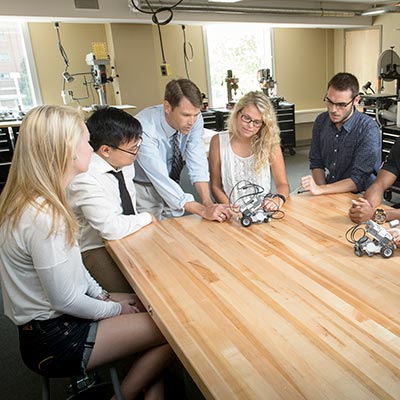 Your coursework draws from multiple departments that are at the frontier of research in a wide array of advanced technologies. Whether you seek a future as an academic scholar or an advanced leader or researcher in the public and private sectors, this degree provides an ideal pathway to a career. A Ph.D. is a clear symbol of capabilities in research and scholarship, deep knowledge of a discipline, and proficiency in analytical and communication skills. What is the STEM Education Leadership Concentration?Program Objectives This PhD in Technology Concentration focuses specifically on Science, Technology, Engineering and Mathematics (STEM) integration through design, leadership, and research. Graduates of the STEM Education Leadership program will be prepared to become leaders in integrated STEM in a variety of positions including university professors, K-12 teachers, policymakers, administrators, informal learning specialists, and others. A central theme of our program is preparing graduate students to use and conduct research that informs practice. Through our vibrant and robust graduate program, the research production around integrated STEM will address crucial needs across the country. What distinguishes Purdue’s program is that it is located at a premier research-intensive university, and this program has a specific focus on integration through design, leadership, and research. The program brings together a dynamic set of elements that establishes Purdue University as leaders in STEM education. Graduate students will get the opportunity to engage in a vibrant and robust research program. Faculty Involved- Dr. Nathan Mentzer (Professor TLI and EDCI)
- Dr. Greg Strimel (Associate Professor TLI)
- Dr. Paul Asunda (Associate Professor TLI and EDCI)
- Dr. Todd Kelley (Professor TLI)
Plan of Study Detailshttps://polytechnic.purdue.edu/degrees/phd-technology/overview Admission Criteriahttps://polytechnic.purdue.edu/degrees/phd-technology/admissions How to Applyhttps://www.purdue.edu/gradschool/admissions/ - Select a PhD in Technology
- Select a Concentration in STEM Education Leadership
 I'm searching for College of Education - STEM Education - Graduate
- Home /
- Registrar /
- Programs /
- Financial Aid
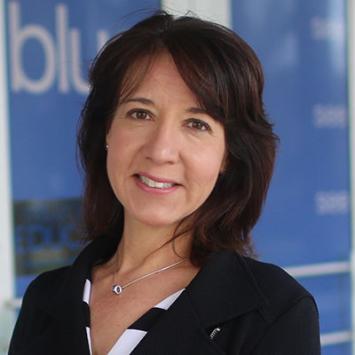 Jennifer Wilhelm Director of Graduate Studies Department of STEM Education 101B Taylor Education Building Lexington, KY 40506 859-257-1291 Other programs from the College of Education:Literacy- graduate, secondary education- graduate, kinesiology and health promotion - health promotion option - online, orientation and mobility - graduate, teacher preparation program in visual impairments - graduate, special education - online, secondary stem education- graduate, school psychology - graduate, educational psychology - graduate, counseling psychology - graduate, educational research methods & policy studies - graduate, higher education - graduate, sport & exercise psychology - graduate, interdisciplinary early childhood education - online, educational leadership - online, learning design and technology - online, counselor education - online, educational research methods and policy studies- online, special education - graduate, counselor education - graduate. The mission of the Department of Science, Technology, Engineering, and Mathematics (STEM) Education is to engage in innovative scholarship, teaching, and service that contributes to improving the quality of P20 science, technology, engineering, and mathematics education in the Commonwealth, the nation, and the world. Faculty members in the department are committed to improving the lives of Kentuckians through scientific literacy, mathematical literacy, and technological literacy from preschool through graduate school and beyond. Faculty members have expertise in a diverse spectrum of specialties relating to research, teaching, and service in STEM Education, and have developed curricula that are widely disseminated locally and nationally. They conduct research on STEM Education issues, conceptual understanding in STEM education, curriculum implementation and teacher professional development. In addition, faculty members have developed a variety of novel courses in STEM Education to foster problem solving, critical thinking, and innovation in STEM Education. The department offers both master and doctoral programs in STEM Education with the flexibility of focusing on a specific discipline (i.e., mathematics education, science education), or a broader focus on STEM Education. Master of Science in STEM EducationDo you want to deepen your knowledge and further your career in STEM education? Designed in collaboration with P-12 school partners, our transdisciplinary Master of Science in STEM Education program provides students with individualized coursework, professional development opportunities, and job-embedded experiences. Students with initial teaching certification may choose to obtain a Kentucky Rank II teaching license upon completion. This program can be completed part-time or full-time and is designed with the schedules of working professionals in mind. Courses are offered in the evenings, online, and hybrid (both on-campus and online). Students will complete a program individualized to their career goals and can choose one of the following options: - Option 1 (with teacher leadership electives): 30 credit hours of approved graduate-level coursework, including a STEM Education Leadership core (12 credit hours), content electives (12 credit hours), and additional teacher leadership electives (six credit hours). Students completing this program will be eligible to apply for a Kentucky Rank II teaching license.
- Option 2: 30 credit hours of approved graduate-level coursework, including a STEM Education Leadership core (12 credit hours), content electives (12 credit hours), and additional electives (six credit hours).
Number of Credit Hours: 30 credit hours Number of Courses: 4 core courses in STEM Education, 4 content courses in STEM, 2 electives, thesis research project Program Type: Hybrid Online/On-Campus  Application Requirements- official transcripts from all post-secondary institutions attended must be submitted to the Graduate School (send to The Graduate School, Attn: Admissions Office, 201 Gillis Building, Lexington, KY 40506-0033) – unofficial transcripts can be submitted to initiate application process, but all admissions are contingent upon receipt of official transcripts
- 2.75 undergraduate; 3.0 Graduate work
- The CV should include contact information including mailing address and home phone number, education with dates, majors, details of degrees and training and certification, professional certifications/licensures, employment history (including work history, academic positions held and research work), publications (books, papers, conference proceedings and conference papers), awards, professional memberships, and interests.
- Personal Statement about your career goals and interests
- The writing sample may be a paper written for a course in an undergraduate or graduate course, publication, conference paper, grant proposal, or a similar writing sample.
- TOEFL or IELTS (for international students whose native language is not English)
- Three letters of recommendation (the online system will email your references to submit their letters)
- Interview with STEM Education faculty specializing in your area of interest (interview will be scheduled upon completion of application materials)
- Onsite writing sample prior to interview
The GRE is optional for admission into this program. Application DeadlinesThis program has a rolling admission policy. Doctor of Philosophy in Education Sciences - STEM EducationThe Education Sciences Interdisciplinary Ph.D. with an emphasis in STEM Education is an intensive program designed to prepare future researchers, teacher educators, and researcher-practitioners to meet the national call for more individuals with heightened scholarly expertise in STEM Education. Students will be mentored by faculty in the STEM Education department who have national and international research projects and study a myriad of topics related to STEM Education. Candidates will complete a program of studies individualized to their goals and future career desires. The program consists of 12 hours of education research methodology courses, 24 hours of STEM Education courses, 9 hours of electives, and a written dissertation. The Education Sciences Interdisciplinary Ph.D. program requires study throughout the year. Full-time study is strongly encouraged; however, part-time study is a possible alternative, particularly for professional educators. Graduate Assistantship opportunities are available for our students. Full-time assistantships involve about 20 hours of job duties and include a stipend, full tuition waiver, and student health insurance. Please note that assistantships are not guaranteed to be available for all students needing this opportunity as positions are limited. In order to be considered for a funded assistantship, students must have already applied to the program. Number of Credit Hours: 45 credit hours Number of Courses: 4 core courses in education research methodology, 8 core courses in STEM Education, 3 electives, dissertation research project - Personal Statement about your career goals and interests
- The writing sample may be a paper written for a course in an undergraduate or graduate course, publication, conference paper, grant proposal, or a similar writing sample
- Three letters of recommendation (the online system will email your references to submit their letters)
Applicants must meet the Graduate School admission requirements .  - Tuition & Aid
- Application Info
- About Grad School
- EKU Main Site
Find the Graduate Program That's Right For YouEKU is a nationally recognized leader in online and graduate education, and you can be confident in your choice to further your education with us. - Professors are experts in their fields and are passionate about your success
- A network of high-achieving alumni
- Increased salary and promotion potential
- Regionally accredited
- National and international program accreditation
What kind of program are you looking for?Online options. >> See All Online Master’s Degrees >> See All Online Doctoral Degrees >> See All Online Graduate Certificates On-Campus Options- Program Level Program Level Doctorate (2) Master's (15)
- Area of Study Area of Study Biology (1) Business (1) Criminal Justice (1) Education (4) English & Writing (2) Exercise & Sport Science (2) Mathematics (1) Music (1) Psychology (3) Technology Management (1)
 Master of Science in Technology Management Master of Science in Psychology – Experimental Master of Music Master of Arts in Communication Sciences & Disorders Master of Arts in Education – School Counseling Master of Science in Criminology & Criminal Justice Master of Business Administration Master of Arts in Clinical Mental Health Counseling Master of Arts in English & Writing Professions Master of Fine Arts in Creative Writing Master of Arts in Education – Secondary Ed Doctor of Education — Educational Leadership & Policy Studies Master of Science in Exercise and Sport Science Master of Science in Recreation and Park Administration Doctor of Psychology – Psy.D Master of Science in Biology Master of Arts in Applied Mathematics- “I can confidently say that — as someone who doesn’t even live in the United States — EKU’s online program has been extremely accommodating and flexible. I can discuss advising appointments over email, and I can have my textbooks shipped to my address overseas.” – Sydney Garner Lewis
- “After the birth of our first child, I knew I needed to go back and finish what I started,” said McKenzie. “I was happy that I could pick up where I left off at EKU even though I lived in a different state.” – EKU Online student and mom
- “I chose EKU because I am a unique student with unique needs, and EKU provides an avenue for students like me to succeed.” – EKU Online Psychology student Jason Tate
 Apply To EKU Grad School- Clerc Center | PK-12 & Outreach
- KDES | PK-8th Grade School (D.C. Metro Area)
- MSSD | 9th-12th Grade School (Nationwide)
- Gallaudet University Regional Centers
- Parent Advocacy App
- K-12 ASL Content Standards
- National Resources
- Youth Programs
- Academic Bowl
- Battle Of The Books
- National Literary Competition
- Youth Debate Bowl
- Youth Esports Series
- Bison Sports Camp
- Discover College and Careers (DC²)
- Financial Wizards
- Immerse Into ASL
- Alumni Relations
- Alumni Association
- Homecoming Weekend
- Class Giving
- Get Tickets / BisonPass
- Sport Calendars
- Cross Country
- Swimming & Diving
- Track & Field
- Indoor Track & Field
- Cheerleading
- Winter Cheerleading
- Human Resources
- Plan a Visit
- Request Info
 Areas of Study - Accessible Human-Centered Computing
- American Sign Language
- Art and Media Design
- Communication Studies
- Criminal Justice
- Data Science
- Deaf Studies
- Early Intervention Studies Graduate Programs
Educational Neuroscience - Hearing, Speech, and Language Sciences
- Information Technology
- International Development
- Interpretation and Translation
- Linguistics
- Mathematics
- Philosophy and Religion
- Physical Education & Recreation
- Public Affairs
- Public Health
- Sexuality and Gender Studies
- Social Work
- Theatre and Dance
- World Languages and Cultures
- B.A. in American Sign Language
- B.A. in Biology
- B.A. in Communication Studies
- B.A. in Communication Studies for Online Degree Completion Program
- B.A. in Deaf Studies
- B.A. in Deaf Studies for Online Degree Completion Program
- B.A. in Education with a Specialization in Early Childhood Education
- B.A. in Education with a Specialization in Elementary Education
- B.A. in English
- B.A. in English for Online Degree Completion Program
- B.A. in Government
- B.A. in Government with a Specialization in Law
- B.A. in History
- B.A. in Interdisciplinary Spanish
- B.A. in International Studies
- B.A. in Mathematics
- B.A. in Philosophy
- B.A. in Psychology
- B.A. in Psychology for Online Degree Completion Program
- B.A. in Social Work (BSW)
- B.A. in Sociology with a concentration in Criminology
- B.A. in Theatre Arts: Production/Performance
- B.A. or B.S. in Education with a Specialization in Secondary Education: Science, English, Mathematics or Social Studies
- B.S. in Accounting
- B.S. in Accounting for Online Degree Completion Program
- B.S. in Biology
- B.S. in Business Administration
- B.S. in Business Administration for Online Degree Completion Program
- B.S. in Data Science
- B.S. in Information Technology
- B.S. in Mathematics
- B.S. in Physical Education and Recreation
- B.S. in Public Health
- B.S. in Risk Management and Insurance
- General Education
- Honors Program
- Peace Corps Prep program
- Self-Directed Major
- M.A. in Counseling: Clinical Mental Health Counseling
- M.A. in Counseling: School Counseling
- M.A. in Deaf Education
- M.A. in Deaf Education Studies
- M.A. in Deaf Studies: Cultural Studies
- M.A. in Deaf Studies: Language and Human Rights
- M.A. in Early Childhood Education and Deaf Education
- M.A. in Early Intervention Studies
- M.A. in Elementary Education and Deaf Education
- M.A. in International Development
- M.A. in Interpretation: Combined Interpreting Practice and Research
- M.A. in Interpretation: Interpreting Research
- M.A. in Linguistics
- M.A. in Secondary Education and Deaf Education
- M.A. in Sign Language Education
- M.S. in Accessible Human-Centered Computing
- M.S. in Speech-Language Pathology
- Master of Public Administration
- Master of Social Work (MSW)
- Au.D. in Audiology
- Ed.D. in Transformational Leadership and Administration in Deaf Education
- Ph.D. in Clinical Psychology
- Ph.D. in Critical Studies in the Education of Deaf Learners
- Ph.D. in Hearing, Speech, and Language Sciences
- Ph.D. in Linguistics
- Ph.D. in Translation and Interpreting Studies
Ph.D. Program in Educational Neuroscience (PEN)- Psy.D. in School Psychology
- Individual Courses and Training
- National Caregiver Certification Course
- CASLI Test Prep Courses
- Course Sections
- Certificates
- Certificate in Sexuality and Gender Studies
- Educating Deaf Students with Disabilities (online, post-bachelor’s)
- American Sign Language and English Bilingual Early Childhood Deaf Education: Birth to 5 (online, post-bachelor’s)
- Early Intervention Studies
- Certificate in American Sign Language and English Bilingual Early Childhood Deaf Education: Birth to 5
- Online Degree Programs
- ODCP Minor in Communication Studies
- ODCP Minor in Deaf Studies
- ODCP Minor in Psychology
- ODCP Minor in Writing
- University Capstone Honors for Online Degree Completion Program
Quick Links - PK-12 & Outreach
- NSO Schedule
Opportunities Faculty and Staff Information  202-250-2405 202-651-5673 Students in our pioneering PEN program gain state-of-the-art Cognitive Neuroscience training in how humans learn, with a special strength in the neuroplasticity of visually guided learning processes. While Cognitive Neuroscience includes studies of learning and higher cognitive processes across the lifespan, its sister discipline, Educational Neuroscience, includes intensive study of five core domains that are crucial in early childhood learning, including language and bilingualism, reading and literacy, math and numeracy, science and critical thinking (higher cognition), social and emotional learning, and includes study of action and visual processing. PEN students become expert in one of the world’s cutting-edge neuroimaging methods in the discipline of Cognitive Neuroscience (e.g., fNIRS, EEG, fMRI, and beyond), study Neuroethics, gain strong critical analysis and reasoning skills in science, and develop expertise in one of the core content areas of learning identified above. While becoming experts in both contemporary neuroimaging and behavioral experimental science, students also learn powerful, meaningful, and principled ways that science can be translated for the benefit of education and society today. This doctoral program is a research-focused program where students develop a specific research focus, conducting supervised research within their mentor’s lab as well as developing their own lines of research through independent research projects. Students accepted into the program receive four years of funding as follows: tuition scholarship for up to the domestic rate + $25,200 annual stipend + health insurance option. Students benefit from access to in-house, research-dedicated neuroimaging facilities where students can also choose to become certified in fNIRS (functional Near Infrared Spectroscopy), one of the world’s most advanced neuroimaging technologies. Students graduate from the program prepared to become groundbreaking scientists! The PEN program opened its doors to the first class of Ph.D. students in Fall 2013. This is Gallaudet’s first interdisciplinary Ph.D. program and has its administrative home in Gallaudet University’s National Science Foundation Science of Learning Center, Visual Language and Visual Learning, VL2. Learn more about VL2 and its cognitive neuroscience and translational labs, all of which provide PEN students with unparalleled lab research experience and opportunities. Deadline to apply for this program: February 15, 2023 (Early applications will be considered) The Ph.D. Program in Educational Neuroscience (PEN) was founded at Gallaudet University by Dr. Laura-Ann Petitto (Chair, PEN Steering Committee) and Dr. Melissa Herzig (Assistant Program Director, PEN). Students in... July 11, 2024 Math conference on campus highlights the benefits of focusing on accessibilityJuly 9, 2024 Graduate students bring cognitive science to deaf K-12 classrooms and beyondApril 17, 2024 Gallaudet receives NSF funding to emphasize accessibility during international conferenceMay 16, 2022 Dr. SaraBeth Sullivan and Carly Leannah honored with 2022 PEN distinguished awardsFebruary 15, 2022 PEN student invited to prestigious summer instituteNovember 23, 2021 Dr. Sullivan successfully defends dissertation, graduates from PENAction & brain lab, cognitive and affective neuroscience lab (can), motion light lab (ml2), numeracy and educational neuroscience lab (nens), petitto brain and language center for neuroimaging (bl2). PEN students benefit from Gallaudet University’s local university consortium, which provides students access to courses taught in the Washington, D.C. area. PEN students also have access to a national network of more than 20 cognitive neuroscience labs throughout the world, through formal Memoranda of Understanding. In the BL2, students can choose to become certified in one of the world's most advanced neuroimaging technologies that is suited for the study of young children and individuals across the lifespan, fNIRS (functional Near Infrared Spectroscopy). Students in PEN will spend a large portion of their time learning about current neuroscience research and conducting their own research. The Science of Learning Center on Visual Language and Visual Learning supervises and aids students in research. Students may join efforts in any of our Research hubs listed above. Ilaria BertelettiAssociate Professor Rachel PizzieAssistant Professor Lorna QuandtCrystal padilla. Research Services Coordinator Melissa MalzkuhnDirector, Motion Light Lab Get the DetailsFill out our inquiry form for an Admissions Counselor to contact you. Apply TodayCreate an account to start Your Applications. Contact the Admissions Office?Already Started an Application? Log in to Submit your completed Application or Check your application status here. At a Glance- Quick Facts
- University Leadership
- History & Traditions
- Accreditation
- Consumer Information
- Our 10-Year Vision: The Gallaudet Promise
- Annual Report of Achievements (ARA)
- The Signing Ecosystem
- Not Your Average University
Our Community- Library & Archives
- Technology Support
- Interpreting Requests
- Ombuds Support
- Health and Wellness Programs
- Profile & Web Edits
Visit Gallaudet- Explore Our Campus
- Virtual Tour
- Maps & Directions
- Shuttle Bus Schedule
- Kellogg Conference Hotel
- Welcome Center
- National Deaf Life Museum
- Apple Guide Maps
Engage Today- Work at Gallaudet / Clerc Center
- Social Media Channels
- University Wide Events
- Sponsorship Requests
- Data Requests
- Media Inquiries
- Gallaudet Today Magazine
- Giving at Gallaudet
- Financial Aid
- Registrar’s Office
- Residence Life & Housing
- Safety & Security
- Undergraduate Admissions
- Graduate Admissions
- University Communications
- Clerc Center
 Gallaudet University, chartered in 1864, is a private university for deaf and hard of hearing students. Copyright © 2024 Gallaudet University. All rights reserved. - Accessibility
- Cookie Consent Notice
- Privacy Policy
- File a Report
800 Florida Avenue NE, Washington, D.C. 20002 An official website of the United States government Here's how you know Official websites use .gov A .gov website belongs to an official government organization in the United States. Secure .gov websites use HTTPS. A lock ( Lock Locked padlock ) or https:// means you've safely connected to the .gov website. Share sensitive information only on official, secure websites. Active funding opportunityNsf 24-591: nsf graduate research fellowship program (grfp), program solicitation, document information, document history. - Posted: July 12, 2024
- Replaces: NSF 23-605
Program Solicitation NSF 24-591 | | |
Directorate for Biological Sciences
Directorate for Computer and Information Science and Engineering
Directorate for STEM Education
Division of Graduate Education
Directorate for Engineering
Directorate for Geosciences
Directorate for Mathematical and Physical Sciences
Directorate for Social, Behavioral and Economic Sciences
Directorate for Technology, Innovation and Partnerships
Office of Integrative Activities
Office of International Science and Engineering | Application Deadline(s) (received by 5 p.m. local time of applicant's mailing address): October 15, 2024 Chemistry; Geosciences, Mathematical Sciences; Physics and Astronomy October 16, 2024 Life Sciences October 17, 2024 Engineering October 18, 2024 Computer and Information Science and Engineering; Materials Research; Psychology; Social, Behavioral and Economic Sciences, STEM Education and Learning Important Information And Revision Notes- This solicitation covers the Fiscal Year (FY) 2025 competition.
- Applicants must use the Research.gov/GRFP site ( https://www.research.gov/grfp/Login.do ) to register in Research.gov and submit their applications through the GRFP Application Module. Only materials submitted through the GRFP Application Module will be accepted.
- Applications are due on the deadline date at 5:00 p.m. local time of the applicant's mailing address.
- Currently enrolled second-year graduate students are strongly advised to provide official Registrar-issued transcripts that clearly indicate the start date of their graduate degree enrollment as part of their application. If the start date is not clearly stated on the transcript, applicants should upload a Registrar-issued document indicating the start of graduate degree enrollment to avoid delay in processing.
- NSF will continue to emphasize high priority research in alignment with the priorities laid out in pages 129-130 of the FY2025 budget [ Budget of the United States Government, Fiscal Year 2025 (whitehouse.gov) ]
- Portions of the eligibility criteria have been rewritten for clarity.
- Reference letters are due October 11 at 5:00 p.m. Eastern Time (ET). The reference letter deadline is a few days before the application deadline dates. Reference letter writers must use the Research.gov/GRFP site ( https://www.research.gov/grfp/Login.do ) to register in Research.gov and submit reference letters through the NSF Reference Letter System.
- Applicants and reference letter writers requiring accessibility accommodation are asked to notify the GRF Operations Center at least four weeks before the deadline to coordinate assistance with NSF in submitting the application or reference letter.
Summary Of Program RequirementsGeneral information. Program Title: NSF Graduate Research Fellowship Program (GRFP) Synopsis of Program: The purpose of the NSF Graduate Research Fellowship Program (GRFP) is to help ensure the quality, vitality, and diversity of the scientific and engineering workforce of the United States. The program recognizes and supports outstanding graduate students who are pursuing full-time research-based master's and doctoral degrees in science, technology, engineering, and mathematics (STEM) or in STEM education. The GRFP provides three years of support over a five-year fellowship period for the graduate education of individuals who have demonstrated their potential for significant research achievements in STEM or STEM education. NSF actively encourages submission of applications from the full spectrum of diverse talent that society has to offer which includes underrepresented and under-served communities. NSF GRFP was established to recruit and support individuals who demonstrate the potential to make significant contributions in STEM. NSF especially encourages applications from undergraduate seniors and Bachelor's degree-holders interested in pursuing research-based graduate study in STEM. First- and second-year graduate students in eligible STEM fields and degree programs are also encouraged to apply. Broadening Participation In STEM:NSF recognizes the unique lived experiences of individuals from communities that are underrepresented and/or under-served in science, technology, engineering, and mathematics (STEM) and the barriers to inclusion and access to STEM education and careers. NSF highly encourages the leadership, partnership, and contributions in all NSF opportunities of individuals who are members of such communities supported by NSF. This includes leading and designing STEM research and education proposals for funding; serving as peer reviewers, advisory committee members, and/or committee of visitor members; and serving as NSF leadership, program, and/or administrative staff. NSF also highly encourages demographically diverse institutions of higher education (IHEs) to lead, partner, and contribute to NSF opportunities on behalf of their research and education communities. NSF expects that all individuals, including those who are members of groups that are underrepresented and/or under-served in STEM, are treated equitably and inclusively in the Foundation's proposal and award process. NSF encourages IHEs that enroll, educate, graduate, and employ individuals who are members of groups underrepresented and/or under-served in STEM education programs and careers to lead, partner, and contribute to NSF opportunities, including leading and designing STEM research and education proposals for funding. Such IHEs include, but may not be limited to, community colleges and two-year institutions, mission-based institutions such as Historically Black Colleges and Universities (HBCUs), Tribal Colleges and Universities (TCUs), women's colleges, and institutions that primarily serve persons with disabilities, as well as institutions defined by enrollment such as Predominantly Undergraduate Institutions (PUIs), Minority-Serving Institutions (MSIs), and Hispanic Serving Institutions (HSIs). "Broadening participation in STEM" is the comprehensive phrase used by NSF to refer to the Foundation's goal of increasing the representation and diversity of individuals, organizations, and geographic regions that contribute to STEM teaching, research, and innovation. To broaden participation in STEM, it is necessary to address issues of equity, inclusion, and access in STEM education, training, and careers. Whereas all NSF programs might support broadening participation components, some programs primarily focus on supporting broadening participation research and projects. Examples can be found on the NSF Broadening Participation in STEM website. Cognizant Program Officer(s): Please note that the following information is current at the time of publishing. See program website for any updates to the points of contact. - Contact: GRF Operations Center, telephone: (866) 673-4737, email: [email protected]
- 47.041 --- Engineering
- 47.049 --- Mathematical and Physical Sciences
- 47.050 --- Geosciences
- 47.070 --- Computer and Information Science and Engineering
- 47.074 --- Biological Sciences
- 47.075 --- Social Behavioral and Economic Sciences
- 47.076 --- STEM Education
- 47.079 --- Office of International Science and Engineering
- 47.083 --- Office of Integrative Activities (OIA)
- 47.084 --- NSF Technology, Innovation and Partnerships
Award InformationAnticipated Type of Award: Fellowship Estimated Number of Awards: 2,300 NSF will support up to 2,300 new Graduate Research Fellowships per fiscal year under this program solicitation pending availability of funds. Anticipated Funding Amount: $159,000 Per award (Fellowship), pending the availability of funds. Each Fellowship provides three years of support over a five-year fellowship period. For each of the three years of support, NSF provides a $37,000 stipend and $16,000 Cost of Education allowance to the graduate degree-granting institution of higher education for each Fellow who uses the support in a fellowship year. The Fellowship is portable and can be transferred to a different institution of higher education if a Fellow chooses to transfer to another institution after completion of the first Fellowship year. While the Fellowship is offered to the individual, the Fellowship funds are awarded to the institution of higher education at which a Fellow is enrolled and the institution is responsible for disbursement of the stipend to the Fellow. Eligibility InformationOrganization Limit: Fellowship applications must be submitted by the prospective Fellow. Applicants must use the GRFP application module in Research.gov ( https://www.research.gov/grfp/Login.do ) to submit the application. Confirmation of acceptance in a graduate degree program in STEM or STEM education is required at the time of Fellowship acceptance, no later than the deadline indicated in the fellowship offer letter, of the year the Fellowship is accepted. Prospective Fellows must enroll in a non-profit university, college, or institution of higher education accredited in, and having a campus located in, the United States, its territories or possessions, or the Commonwealth of Puerto Rico that offers advanced degrees in STEM and STEM education no later than fall of the year the Fellowship is accepted. All Fellows from the date of Fellowship Start through Completion or Termination of the Fellowship must be enrolled in a graduate degree-granting institution of higher education accredited in, and having a campus located in, the United States its territories or possessions, or the Commonwealth of Puerto Rico. Applicant Eligibility: See the Detailed Eligibility Requirements in Section IV for full information. Eligibility is based on the applicant's status at the application deadline. Applicants must self-certify that they are eligible to receive the Fellowship. To be eligible, an applicant must meet all of the following eligibility criteria at the application deadline. All academic credentials must be indicated in Registrar-issued transcripts. - Be a U.S. citizen, national, or permanent resident
- Intend to enroll or be enrolled full-time in a research-based Master's or doctoral degree program in an eligible Field of Study in STEM or STEM education (See Appendix and Section IV.3 for eligible Fields of Study
- Never previously accepted a Graduate Research Fellowship
- Declined any previously offered Graduate Research Fellowship by the acceptance deadline
- Never previously applied to GRFP while enrolled in a graduate degree program
- Never earned a doctoral or terminal degree in any field
- Have completed no more than one academic year (according to institution's academic calendar) while enrolled in a graduate degree program (non-degree coursework must be clearly identified in the transcript and does not count toward this limit)
- Individuals holding joint Bachelor's-Master's degrees who did not apply while enrolled in the joint program, may apply as second-year graduate applicants if enrolled in an eligible doctoral program the beginning of the academic year immediately following the academic award year of the joint degree
- not enrolled in a graduate degree program at application deadline
- two or more consecutive years past graduate degree enrollment or completion at the application deadline
- Not be a current NSF employee.
Applications that do not meet eligibility requirements will not be reviewed. Number of Times an Individual May Apply - Undergraduate seniors and Bachelor's degree holders who have never enrolled in a graduate degree program have no restrictions on the number of times they can apply before enrolling in a degree-granting graduate program.
- Currently enrolled graduate students who have completed no more than one academic year (according to institution's academic calendar) while enrolled in a graduate degree program can apply only once . Non-degree coursework (clearly identified in a transcript) does not count toward the one academic year limit.
- Individuals applying while enrolled in a joint Bachelor's-Master's degree program are considered graduate students who: i) must have completed three (3) years in the joint program, and; ii) are limited to one application to GRFP; they will not be eligible to apply again as doctoral students. For GRFP, joint Bachelor's-Master's degrees are defined as degrees concurrently pursued and awarded .
- Individuals holding joint Bachelor's-Master's degrees, currently enrolled as first-year doctoral students, who (i) have not previously applied as graduate students and (ii) enrolled in the doctoral program the beginning of the academic year immediately following the academic award year of the joint degree, may only apply in the first year of the doctoral program.
- Applications withdrawn by November 15 of the application year do not count toward the one-time graduate application limit. Applications withdrawn after November 15 count toward this one-time limit.
- Applications not reviewed by NSF do not count toward the one-time graduate application limit.
Limit on Number of Applications per Applicant: 1 An eligible applicant may submit only one application per annual competition. Application Preparation and Submission InstructionsA. application preparation instructions. - Letters of Intent: Not applicable
- Preliminary Proposal Submission: Not applicable
- Application Instructions: This solicitation contains information that deviates from the standard NSF Proposal and Award Policies and Procedures Guide (PAPPG) proposal preparation guidelines. Please see the full text of this solicitation for further information.
B. Budgetary InformationC. due dates, application review information criteria. Merit Review Criteria: National Science Board approved Merit Review Criteria (Intellectual Merit and Broader Impacts) apply. Additional Solicitation-Specific Review Criteria also apply (see Section VI.A below). Award Administration InformationAward Conditions: NSF GRFP awards are made to the institution of higher education at which a Fellow is or will be enrolled. The awardee institution is responsible for financial management of the award and disbursement of Fellowship funds to the individual Fellow. The institution will administer the awards, including any amendments, in accordance with the terms of the Agreement and provisions (and any subsequent amendments) contained in the document NSF Graduate Research Fellowship Program Administrative Guide for Fellows and Coordinating Officials . All Fellowships are subject to the provisions (and any subsequent amendments) contained in the document NSF Graduate Research Fellowship Program Administrative Guide for Fellows and Coordinating Officials . Reporting Requirements: See reporting requirements in full text of solicitation and the NSF Graduate Research Fellowship Program Administrative Guide for Fellows and Coordinating Officials . Fellows are required to submit annual activity reports and to declare fellowship status by the deadline specified in the notification sent by email each year. Additional reporting requirements are presented in Section VII.C of this solicitation. I. IntroductionThe Graduate Research Fellowship Program (GRFP) is a National Science Foundation-wide program that provides Fellowships to individuals selected early in their graduate careers based on their demonstrated potential for significant research achievements in science, technology, engineering or mathematics (STEM) or in STEM education. Three years of support over a five-year period are provided for graduate study that leads to a research-based master's or doctoral degree in STEM or STEM education (see eligible Fields of Study in Appendix). The program goals are: 1) to select, recognize, and financially support early-career individuals with the demonstrated potential to be high achieving scientists and engineers, and 2) to broaden participation of the full spectrum of diverse talents in STEM. NSF actively encourages submission of applications from the full spectrum of diverse talent in STEM. GRFP is a critical program in NSF's overall strategy to develop the globally-engaged workforce necessary to ensure the Nation's leadership in advancing science and engineering research and innovation. The ranks of NSF Fellows include numerous individuals who have made transformative breakthrough discoveries in science and engineering, become leaders in their chosen careers, and been honored as Nobel laureates. II. Program DescriptionThe Graduate Research Fellowship Program (GRFP) awards Fellowships for graduate study leading to research-based master's and doctoral degrees in STEM or in STEM education. GRFP supports individuals proposing a comprehensive plan for graduate education that takes individual interests and competencies into consideration. The plan describes the academic achievements, attributes, and experiences that illustrate the applicant's demonstrated potential for significant research achievements. The applicant must provide a detailed profile of their relevant education, research experience, and plans for graduate education that demonstrates this potential. Prospective applicants are advised that submission of an application implies their intent to pursue graduate study in a research-based program in STEM or STEM education at an accredited, non-profit institution of higher education having a campus located in the United States, its territories or possessions, or the Commonwealth of Puerto Rico. All applicants are expected to either have adequate preparation to enroll in a research-based master's or doctoral program, or be enrolled in such a program by fall of the year the Fellowship is accepted. From the date of the Fellowship Start through Completion or Termination of the Fellowship, applicants accepting the award (Fellows) must be enrolled in an accredited graduate degree-granting institution of higher education having a campus located in the United States, its territories or possessions, or the Commonwealth of Puerto Rico. In FY2024, NSF will continue to fund outstanding Graduate Research Fellowships in all areas of science and engineering supported by NSF and continue to emphasize high priority research areas in alignment with NSF goals and priorities listed in pages 127-128 of the FY2024 budget ( https://www.whitehouse.gov/wp-content/uploads/2023/03/budget_fy2024.pdf ). Applications are encouraged in all disciplines supported by NSF. III. Award InformationFellowship funding will be for a maximum of three years of financial support (in 12-month allocations starting fall of the award year) usable over a five-year fellowship period. The anticipated announcement date for the Fellowship awards is early April each year. The Fellowship is portable and can be transferred to a different institution of higher education if a Fellow chooses to transfer to another institution after completion of the first Fellowship year. While the Fellowship is offered to the individual, the Fellowship funds are awarded to the institution at which a Fellow is enrolled and is considered the official NSF awardee institution. The awardee institution receives up to a $53,000 award per Fellow who uses the support in a fellowship year. The awardee institution is responsible for disbursement of fellowship funds to the Fellow. The Graduate Research Fellowship stipend is $37,000 for a 12-month tenure period, prorated in whole month increments of $3,083. The Cost of Education allowance provides payment in lieu of tuition and mandatory fees to the institution of $16,000 per year of fellowship support. During receipt of the fellowship support, the institution is required to exempt Fellows from paying tuition and fees normally charged to students of similar academic standing, unless such charges are optional or are refundable (i.e., the institution is responsible for tuition and required fees in excess of the Cost of Education allowance). Acceptance of fellowship funds by the awardee institution indicates acceptance of and adherence to these and other terms and conditions of the NSF GRFP award as indicated in the NSF Graduate Research Fellowship Program Administrative Guide for Fellows and Coordinating Officials . GRFP awards are eligible for supplemental funding as described in Chapter VI of the NSF Proposal & Award Policies & Procedures Guide (PAPPG). Facilitation Awards for Scientists and Engineers with Disabilities (FASED) provide funding for special assistance or equipment to enable persons with disabilities to work on NSF-supported projects as described in Chapter II.F of the PAPPG. Fellows with disabilities may apply for assistance after consulting the instructions in the document NSF Graduate Research Fellowship Program Administrative Guide for Fellows and Coordinating Officials. Career-Life Balance Supplemental Funding Requests (Dear Colleague Letter NSF 21-021 ) can be requested by the awardee institution to provide additional personnel (e.g., technician) to sustain the research of Fellows on approved medical leave due to family leave situations as indicated in Chapter II.F of the PAPPG. Fellows are eligible to apply for non-academic INTERN supplements; applications must be submitted according to GRFP-specific guidance stated in the INTERN program description. Honorable Mention The NSF accords Honorable Mention to meritorious applicants who do not receive Fellowship offers. This is considered a significant national academic achievement. IV. Eligibility InformationAdditional Eligibility Info: Eligibility is based on the applicant's status at the application deadline. Detailed Eligibility Requirements: Described in detail below are the eligibility requirements for the Graduate Research Fellowship Program: (1) citizenship, (2) degree requirements, and (3) field of study, degree programs, and proposed research. Applicants are strongly advised to read the entire program solicitation carefully to ensure that they understand all the eligibility requirements. Applicants must self-certify that they meet all eligibility criteria. 1. Citizenship Applicants must be United States citizens, nationals, or permanent residents by the application deadline. The term "national" designates a native resident of a commonwealth or territory of the United States. It does not refer to a citizen of another country who has applied for United States citizenship and who has not received U.S. citizenship by the application deadline, nor does it refer to an individual present in the U.S. on any type of visa. 2. Degree Requirements Eligible applicants: 1) current undergraduates or Bachelor's degree holders never enrolled in a degree-granting graduate program, who will be prepared to attend graduate school in fall of the award year; 2) current graduate students with no more than one academic year completed according to institution's academic calendar of any degree-granting graduate program; or 3) currently unenrolled individuals who wish to return to graduate study and are at least two consecutive years past their most recent enrollment in any graduate degree-granting program, regardless of whether the degree was completed or awarded. Below are detailed guidelines to determine eligibility: a) Currently enrolled undergraduate students and Bachelor's degree-holders with no prior enrollment in a graduate degree-granting program (including joint Bachelor's-Master's programs): Undergraduate students on track to receive a Bachelor's degree by the fall of the year following the application (e.g., senior or final year of Bachelor's degree) and Bachelor's degree holders never enrolled in a graduate degree program can apply an unlimited number of times prior to enrolling in a graduate degree program. They must be prepared to enroll in a full-time graduate degree program by fall of the year they are offered a Graduate Research Fellowship. b) Currently enrolled joint Bachelor's-Master's degree students (joint Bachelor's-Master's defined as program in which both degrees are concurrently pursued and awarded as indicated on the transcript): Individuals applying while enrolled in a joint Bachelor's-Master's degree program are considered graduate students who: 1) must have completed three years in the joint program, and; ii) are limited to one application to GRFP; they will not be eligible to apply again as doctoral students. Joint Bachelor's-Master's degree-holders, currently enrolled as first-year doctoral students who have not previously applied as graduate students and enrolled in the doctoral program in the beginning of the academic year immediately following the academic award year of the joint degree, may only apply in the first year of the doctoral program. Individuals holding joint Bachelor's-Master's degrees who did not progress to a doctoral program the beginning of the academic year immediately following the academic award year of the joint degree, must apply as returning graduate students (see above). c) Currently enrolled graduate students: Applicants must not have completed more than one academic year of graduate study as indicated in the academic transcript issued by the Registrar of the universities attended, as of the application deadline. Graduate status is determined to begin on the date indicated on the Registrar-issued transcript and ALL activities after that date will be considered graduate activities. Summer research activities that are part of the graduate degree program (e.g. research credits) will be counted as graduate activities. Participation in non-degree summer activities PRIOR TO graduate degree enrollment as indicated in the Registrar-issued transcript before the start of the fall graduate program is not included in this total. Second-year graduate students are strongly advised to include official Registrar-issued transcripts. If the transcript does not clearly state the start date of graduate degree enrollment, they should also submit a Registrar-issued document confirming the start of graduate degree enrollment. Graduate coursework taken without being enrolled in a graduate degree-granting program is not counted in this limit. d) Currently unenrolled individuals who wish to re-enter graduate study: Applicants who earned a previous Master's or professional degree, or have completed more than one academic year in any graduate degree program (regardless of whether the degree was completed or awarded) are eligible only if they are currently unenrolled and at least two consecutive years past the most recent graduate degree enrollment at the application deadline . Applicants must not have engaged in any graduate coursework during the interruption. Applicants should address the reasons for the interruption in graduate study in the Personal, Relevant Background and Future Goals Statement. 3. Field of Study, Degree Programs, and Proposed Research Fellowships are awarded for graduate study leading to research-based Master's and doctoral degrees in science, technology, engineering or mathematics (STEM) or in STEM education, in eligible Fields of Study listed below: Chemistry Computer and Information Sciences and Engineering Engineering Geosciences Life Sciences Materials Research Mathematical Sciences Physics & Astronomy Psychology Social, Behavioral, and Economic Sciences STEM Education and Learning Research A complete list of eligible Major Fields of Study and their subfields are listed in the Appendix. If awarded, Fellows must enroll in a graduate degree program consistent with the Major Field of Study proposed in their application. A fellowship will not be awarded in a different Major Field of Study from that indicated in the application. Only research-based Master's and doctoral degrees in STEM or STEM education are eligible for GRFP support. Professional degree programs and graduate programs that are primarily course-based with no thesis are ineligible for GRFP support. Within eligible fields of study, there are ineligible areas of study and ineligible areas of proposed research. See below for ineligible areas of study and proposed research. Applications determined to be ineligible will not be reviewed. a) Ineligible degree programs Individuals are not eligible to apply if they will be enrolled in a practice-oriented professional degree program such as medical, dental, law, and public health degrees at any time during the fellowship. Ineligible degree programs include, but are not limited to, MBA, MPH, MSW, JD, MD, PharmD, DVM and DDS. Joint or combined professional degree-science programs (e.g., MD/PhD or JD/PhD) and dual professional degree-science programs are also not eligible. Individuals enrolled in a graduate degree program while on a leave of absence from a professional degree program or professional degree-graduate degree joint program are not eligible. b) Ineligible areas of study Individuals are not eligible to apply if they will be enrolled in graduate study focused on clinical practice, counseling, social work, patient-oriented research, epidemiological and medical behavioral studies, outcomes research (interventions, treatment, or therapies), and health services research. Ineligible study includes pharmacologic, non-pharmacologic, and behavioral interventions for physical or mental disease or disorder, prophylaxis, diagnosis, therapy, or treatment. Research to provide evidence leading to a scientific basis for consideration of a change in health policy or standard of care is not eligible. Graduate study focused on community, public, or global health, or other population-based research including medical intervention trials is also not eligible. c) Ineligible proposed research and limited exceptions to ineligible research: (i) Biological or psychological research for which the goals are directly human disease- or health- related, including the etiology, diagnosis of, and treatment and/or interventions for, physical or mental disease or disorder is not eligible for support, with limited exceptions for applicants in engineering, mathematical, physical, and computer or information sciences with health-related research topics (described below). Research activities using animal models of disease for developing or testing of drugs, procedures, or interventions for treatment of physical or mental disease or disorder are also not eligible. (ii) For applicants applying to degree programs in engineering, mathematical, physical, computer or information sciences disciplines, research with disease- or health-related goals (e.g., etiology-, diagnosis-, or treatment-related) that advance fundamental knowledge in engineering, mathematical, physical, computer or information sciences, is eligible for support. (iii) Certain areas of bioengineering research directed at medical use are eligible. These include research projects in bioengineering to aid persons with disabilities, or to diagnose or treat human disease or disorder, provided they apply engineering principles to problems in medicine while primarily advancing engineering knowledge. Applicants planning to study and conduct research in these areas of bioengineering should select biomedical engineering as the field of study. (iv) Certain areas of materials research directed at development of materials for use in biological or biomedical systems are eligible, provided they are focused on furthering fundamental materials research. (v) Research focused on basic questions in plant pathology is eligible, however, applied studies focused on maximizing production in agricultural plants or impacts on food safety are not eligible. (vi) Research with implications that inform policy is eligible. Research with the expressed intent to influence, advocate for or effect specific policy outcomes is not eligible. Applicants are advised to consult a faculty member, academic advisor, mentor, or other advisor for guidance on preparation of their research plans, and selection of Major Fields of Study and subfields. V. Application Preparation And Submission InstructionsFellowship applications must be submitted online using the NSF Graduate Research Fellowship Program Application Module at https://www.research.gov/grfp/Login.do according to the deadline corresponding with the Field of Study selected in the application . Applications must be received by 5:00 p.m. local time as determined by the applicant's mailing address provided in the application. Applications received after the Field of Study deadline will not be reviewed . Applications submitted to a Field of Study deadline not in alignment with the proposed research plan will not be reviewed. All reference letters must be submitted online by the reference writers through the NSF Reference Letter System in the Research.gov site ( https://www.research.gov/grfp/Login.do ) and must be received by the reference letter deadline (see Application Preparation and Submission Instructions/C. Due Dates of this Solicitation), of 5:00 p.m. Eastern Time (ET). No reference letters will be accepted via email. Reference letter writers cannot be family members of the applicant. Applicants are required to provide the name and contact information for three (3) reference writers from non-family members. Up to five (5) potential reference letter writers can be provided. Two reference letters from non-family members must be received by the reference letter deadline to be reviewed. If fewer than two reference letters (one or none) are received by the reference letter deadline, the application will not be reviewed. Applicants must submit the following information through the GRFP Application Module: Personal Information; Education, Work and Other Experience; Transcript PDFs; Proposed Field(s) of Study; Proposed Graduate Study and Graduate School Information; the names and email addresses of at least three reference letter writers; Personal, Relevant Background and Future Goals Statement PDF; and Graduate Research Plan Statement PDF. Only the information required in the GRFP Application Module will be reviewed. No additional items or information will be accepted or reviewed. Do not provide links to web pages within the application, except as part of citations in the References Cited section. Images must be included in the page limits. Review of the application and reference letters is based solely on materials received by the application and reference letter deadlines. No application materials will be accepted via email. Applicants must follow the instructions in the GRFP Application Module for completing each section of the application. The statements must be written using the following guidelines: - standard 8.5" x 11" page size
- 11 point or higher font, except text that is part of an image
- Times New Roman font for all text, Cambria Math font for equations, Symbol font for non-alphabetic characters (it is recommended that equations and symbols be inserted as an image)
- Cited references should include the name of the journal (abbreviations accepted).
- 1" margins on all sides, no text inside 1" margins (no header, footer, name, or page number)
- No less than single-spacing (approximately 6 lines per inch)
- Do not use line spacing options such as "exactly 11 point," that are less than single spaced
- PDF file format only
Compliance with these guidelines will be automatically checked by the GRFP Application Module. Documents that are not compliant will not be accepted by the GRFP Application Module. Applicants are strongly advised to proofread and upload their documents early to ensure they are format-compliant and that non-compliant documents do not delay upload of the complete application for receipt by the deadline. Applications that are not compliant with these format requirements will not be reviewed. The maximum length of the Personal, Relevant Background and Future Goals Statement is three (3) pages (PDF). The maximum length of the Graduate Research Plan Statement is two (2) pages (PDF). These page limits include all references, citations, charts, figures, images, and lists of publications and presentations. Applicants must certify that the two statements (Personal, Relevant Background and Future Goals Statement, and Graduate Research Plan Statement) in the application are their own original work. As explained in the NSF Proposal and Award Policies and Procedures Guide (PAPPG): "NSF expects strict adherence to the rules of proper scholarship and attribution. The responsibility for proper scholarship and attribution rests with the authors of a proposal; all parts of the proposal should be prepared with equal care for this concern. Authors other than the PI (or any co-PI) should be named and acknowledged. Serious failure to adhere to such standards can result in findings of research misconduct. NSF policies and rules on research misconduct are discussed in the PAPPG, as well as 45 CFR Part 689." Both Personal and Research Plan statements must address NSF's review criteria of Intellectual Merit and Broader Impacts (described in detail in Section VI). " Intellectual Merit" and "Broader Impacts" sections must be presented in individual separate sections, under individual separate headings, in each of the Personal and Research Plan statements. These separately headed sections cannot be combined into one section or combined with any other section. Applications that do not have separate headings and sections for Intellectual Merit and Broader Impacts will not be reviewed. Applicants must list their undergraduate institution, and all graduate institutions attended with a start date prior to the fall term in which the application is submitted. Transcripts are required for all degree-granting programs listed. Transcripts may be included for all other institutions listed in the Education section. If the applicant started at the current institution in the fall of the application year and the institution does not provide unofficial or official transcripts prior to completion of the first term, the applicant may submit a class schedule/enrollment verification form in place of a transcript. Second-year graduate students are strongly advised to submit an official transcript. If the transcript or enrollment verification form does not include the graduate enrollment start date, a Registrar-issued document that indicates graduate enrollment start date must be submitted. At least one transcript must be included for the application to be accepted by the GRFP Application Module. Transcripts must be uploaded through the GRFP Application Module by the Field of Study application deadline. Applicants should redact personally-identifiable information (date of birth, individual Social Security Numbers, personal financial information, home addresses, home telephone numbers and personal email addresses) from the transcripts before uploading. Transcripts must be uploaded as a PDF to be accepted by the GRFP Application Module. Transcripts must not be encrypted; the GRFP Application Module does not accept encrypted or password-protected transcripts. Applicants who earned master's degrees in joint Bachelor's-Master's degree programs should submit transcripts that clearly document the joint program. If the transcript does not document the joint program and does not show that the Bachelor's and Master's degrees were conferred on the same date, applicants must upload a letter from the registrar of the institution certifying enrollment in a joint program, appended to the transcript for that institution. Failure to provide clear documentation of a joint program may result in an application being returned without review. Failure to comply fully with the above requirements will result in the application not being reviewed. Applications that are incomplete due to missing required transcripts and/or reference letters (fewer than two letters received), or that do not have "received" status in the Application Module on the application deadline for the selected Field of Study) will not be reviewed. Applicants are advised to submit applications early to avoid unanticipated delays on the deadline dates. Reference Letters Reference writers cannot be family members of the applicant. Applicants are required to provide the name and contact information for three (3) reference writers from non-family members. Up to five (5) potential reference letter writers can be provided. Two reference letters from non-family members must be received by the reference letter deadline for an application to be reviewed. If fewer than two reference letters (one or none) are received by the reference letter deadline, the application will not be reviewed. No changes to the list of reference writers are allowed after the application is submitted. Applicants are strongly advised to check the accuracy of email addresses provided for reference writers before submitting their application. Applicants are strongly advised to contact potential reference writers and confirm their willingness to register in Research.gov and to submit a reference letter before the deadline for letters, before submitting their names. All reference letters must be received through the NSF Reference Letter System by 5:00 p.m. ET (Eastern Time) on the letter submission deadline date (see the deadline posted in GRFP Application Module and in Application Preparation and Submission Instructions/C. Due Dates of this Solicitation). No exceptions to the reference letter submission deadline will be granted. Each letter is limited to two (2) pages (PDF). The GRFP Application Module allows applicants to request up to five (5) reference letters and to rank those reference letters in order of preference for review. If more than three reference letters are received, the top three letters according to ranked preference will be considered for the application. Reference writers will be notified by an email of the request to submit a letter of reference on behalf of an applicant. Reference writers will not be notified of the ranked preference for review provided by the applicant. To avoid disqualifying an application, reference writers should upload the letter well in advance of the 5:00 p.m. ET deadline. No letters will be accepted via email. Letter writers will receive a confirmation email after successful upload via the GRFP Application Module. For technical assistance with letter upload: NSF Help Desk: [email protected] ; 1-800-381-1532 Applicants must enter an email address for each reference writer into the GRFP Application Module. An exact email address is crucial to matching the reference writer and the applicant in the GRFP Application Module. Applicants should ask reference writers well in advance of the reference writer deadline, and it is recommended they provide copies of their application materials to the writers. Applicant-nominated reference writers must first register in Research.gov then upload their letters through the NSF Reference Letter System. Reference letter requirements include: - Institutional or professional letterhead, if available
- SIGNED by the reference writer, including the name, professional title, department, and institution
- Two (2) page limit (PDF file format)
- Standard 8.5" x 11" page size
- 11-point or higher Times New Roman font and 1" margins on all sides
- Single spaced using normal (100%) single-line spacing
The reference letter should address the NSF Merit Review Criteria of Intellectual Merit and Broader Impacts (described in detail below). It should include details explaining the nature of the relationship to the applicant (including research advisor role), comments on the applicant's potential for contributing to a globally-engaged United States science and engineering workforce, statements about the applicant's academic potential and prior research experiences, statements about the applicant's proposed research, and any other information to aid review panels in evaluating the application according to the NSF Merit Review Criteria. Application Completion Status Applicants should use the "Application Completion Status" feature in the GRFP Application Module to ensure all application materials, including reference letters, have been received by NSF before the deadlines. For technical support, call the NSF Help Desk at 1-800-381-1532 or e-mail [email protected] . Interdisciplinary Applications NSF welcomes applications for interdisciplinary programs of study and research; however, data on interdisciplinary study is collected for informational purposes only. Interdisciplinary research is defined as "a mode of research by teams or individuals that integrates information, data, techniques, tools, perspectives, concepts, and/or theories from two or more disciplines or bodies of specialized knowledge to advance fundamental understanding or to solve problems whose solutions are beyond the scope of a single discipline or area of research practice" (Committee on Facilitating Interdisciplinary Research, Committee on Science, Engineering, and Public Policy, 2004. Facilitating Interdisciplinary Research . National Academies. Washington: National Academy Press, p. 2). Applications must be received by the deadline for the first Major Field of Study designated in the application. Applications will be reviewed by experts in the first Major Field of Study listed. If awarded, Fellows will be required to enroll in a degree program consistent with the Major Field of Study in which the application was funded. Withdrawal of a GRFP application To withdraw a submitted application, the applicant must withdraw their application using the Withdrawal option in the GRFP Application Module. Applications withdrawn by November 15 of the application year do not count toward the one-time graduate application limit. Applications withdrawn after November 15 count toward this limit. Cost Sharing: Inclusion of voluntary committed cost sharing is prohibited. Indirect Cost (F&A) Limitations: No indirect costs are allowed. Other Budgetary Limitations: NSF awards $53,000 each year to the GRFP institution to cover the Fellow stipend and Cost of Education allowance for each NSF Graduate Research Fellow "on tenure" at the institution. The NSF Graduate Research Fellowship Program Fellowship stipend is $37,000 for a 12-month tenure period, prorated in monthly increments of $3,083. The institutional Cost of Education allowance is $16,000 per tenure year per Fellow. D. Application Submission RequirementsApplicants are required to prepare and submit all applications for this program solicitation through the GRFP Application Module. Detailed instructions for application preparation and submission are available at: https://www.research.gov/grfp/Login.do . For user support, call the NSF Help Desk at 1-800-381-1532 or e-mail [email protected] . The NSF Help Desk answers general technical questions related to the use of the system. Specific questions related to this program solicitation should be referred to the NSF program staff contact(s) listed in Section VIII of this solicitation. VI. Application Review InformationA. merit review principles and criteria. Applications are reviewed by disciplinary and interdisciplinary scientists and engineers and other professional graduate education experts. Reviewers are selected by Program Officers charged with oversight of the review process. Care is taken to ensure that reviewers have no conflicts of interest with the applicants. Applications are reviewed in broad areas of related disciplines based on the selection of a Field of Study (see Fields of Study in Appendix). Selection of a Major Field of Study determines the application deadline, the broad disciplinary expertise of the reviewers, and the discipline of the graduate degree program if awarded a Fellowship. Applicants are advised to select the Major Field of Study in the GRFP Application Module (see Fields of Study in Appendix) that is most closely aligned with the proposed graduate program of study and research plan. Applicants who select "Other" must provide additional information describing their studies. Each application will be reviewed independently in accordance with the NSF Merit Review Criteria using all available information in the completed application. In considering applications, reviewers are instructed to address the two Merit Review Criteria as approved by the National Science Board - Intellectual Merit and Broader Impacts ( NSF Proposal and Award Policies and Procedures Guide ). Applicants must include separate statements on Intellectual Merit and Broader Impacts in their written statements in order to provide reviewers with the information necessary to evaluate the application with respect to both Criteria as detailed below. Applicants should include headings for Intellectual Merit and Broader Impacts in their statements. The following description of the Merit Review Criteria is provided in Chapter III of the NSF Proposal and Award Policies and Procedures Guide (PAPPG) : All NSF proposals are evaluated through use of the two National Science Board approved merit review criteria. In some instances, however, NSF will employ additional criteria as required to highlight the specific objectives of certain programs and activities. The two merit review criteria are listed below. Both criteria are to be given full consideration during the review and decision-making processes; each criterion is necessary but neither, by itself, is sufficient. Therefore, proposers must fully address both criteria. (PAPPG Chapter II.D.2.d(i) contains additional information for use by proposers in development of the Project Description section of the proposal.) Reviewers are strongly encouraged to review the criteria, including PAPPG Chapter II.D.2.d(i), prior to the review of a proposal. When evaluating NSF proposals, reviewers will be asked to consider what the proposers want to do, why they want to do it, how they plan to do it, how they will know if they succeed, and what benefits could accrue if the project is successful. These issues apply both to the technical aspects of the proposal and the way in which the project may make broader contributions. To that end, reviewers will be asked to evaluate all proposals against two criteria: Intellectual Merit : The Intellectual Merit criterion encompasses the potential to advance knowledge; and Broader Impacts : The Broader Impacts criterion encompasses the potential to benefit society and contribute to the achievement of specific, desired societal outcomes. The following elements should be considered in the review for both criteria: 1. What is the potential for the proposed activity to: a. Advance knowledge and understanding within its own field or across different fields (Intellectual Merit); and b. Benefit society or advance desired societal outcomes (Broader Impacts)? 2. To what extent do the proposed activities suggest and explore creative, original, or potentially transformative concepts? 3. Is the plan for carrying out the proposed activities well-reasoned, well-organized, and based on a sound rationale? Does the plan incorporate a mechanism to assess success? 4. How well qualified is the individual, team, or organization to conduct the proposed activities? 5. Are there adequate resources available to the PI (either at the home organization or through collaborations) to carry out the proposed activities? Additionally, Chapter II of the PAPPG states: Broader impacts may be accomplished through the research itself, through the activities that are directly related to specific research projects, or through activities that are supported by, but are complementary to, the project. NSF values the advancement of scientific knowledge and activities that contribute to achievement of societally relevant outcomes. Such outcomes include, but are not limited to: full participation of women, persons with disabilities, and underrepresented minorities in science, technology, engineering, and mathematics (STEM); improved STEM education and educator development at any level; increased public scientific literacy and public engagement with science and technology; improved well-being of individuals in society; development of a diverse, globally competitive STEM workforce; increased partnerships between academia, industry, and others; improved national security; increased economic competitiveness of the US; and enhanced infrastructure for research and education. Additional Solicitation Specific Review Criteria Applicants are reviewed on their demonstrated potential to advance knowledge and to make significant research achievements and contributions to their fields throughout their careers. Reviewers are asked to assess applications using a holistic, comprehensive approach, giving balanced consideration to all components of the application, including the educational and research record, leadership, outreach, service activities, and future plans, as well as individual competencies, experiences, and other attributes. The aim is to recruit and retain a diverse cohort of early-career individuals with high potential for future achievements, contributions, and broader impacts in STEM and STEM education. B. Application Review and Selection ProcessApplications submitted in response to this program solicitation will be reviewed online by Panel Review. The application evaluation involves the review and rating of applications by disciplinary and interdisciplinary scientists and engineers, and other professional graduate education experts. The primary responsibility of each reviewer is to evaluate eligible GRFP applications by applying the Merit Review Criteria described in Section VI.A, and to recommend applicants for NSF Graduate Research Fellowships. Reviewers are instructed to review the applications holistically, applying the Merit Review Criteria and noting GRFP's emphasis on demonstrated potential for significant research achievements in STEM or in STEM education. From these recommendations, NSF selects applicants for Fellowships or Honorable Mention, in line with NSF's mission and the goals of GRFP. After Fellowship offers are made, applicants are able to view verbatim reviewer comments, excluding the names of the reviewers, for a limited period of time through the NSF GRFP Module. VII. Award Administration InformationA. notification of the award. NSF Graduate Research Fellowship Program applicants will be notified of the outcomes of their applications by early April of the competition year. The NSF publishes lists of Fellowship and Honorable Mention recipients on the GRFP Module at https://www.research.gov/grfp/Login.do in early April. B. Award ConditionsNSF GRFP awards are made to the institution of higher education at which a Fellow is or will be enrolled. The awardee institution is responsible for financial management of the award and disbursement of Fellowship funds to the Fellow. The NSF GRFP award consists of the award notification letter that includes the applicable terms and conditions and Fellowship management instructions. All Fellowships are made subject to the provisions (and any subsequent amendments) contained in the document NSF Graduate Research Fellowship Program Administrative Guide for Fellows and Coordinating Officials . NSF GRFP awards provide funds for NSF Fellows who have "on tenure" status. The institution will administer the awards, including any amendments, in accordance with the terms of the Agreement and provisions (and any subsequent amendments) contained in the document NSF Graduate Research Fellowship Program Administrative Guide for Fellows and Coordinating Officials . The applicant must accept or decline the Fellowship by the deadline indicated in the award notification letter by logging into the GRFP Module at https://www.research.gov/grfp/Login.do with the applicant User ID and password. Failure to comply with the deadline and acceptance of Fellowship Terms and Conditions by the deadline will result in revocation of the Fellowship offer and render applicants ineligible to re-apply. Terms and Conditions Awardees must formally accept and agree to the terms and conditions of the Fellowship award. Acceptance of the Fellowship constitutes a commitment to pursue a graduate degree in an eligible science or engineering field. Acceptance of a Fellowship award is an explicit acceptance of this commitment and assurance that the Fellow will be duly enrolled in a graduate degree program consistent with the field of study indicated in their application by the beginning of the following academic year. Major changes in scope later in the graduate career require NSF approval. NSF Graduate Research Fellowship Program Administrative Guide for Fellows and Coordinating Officials includes the terms and conditions that apply to the Fellowship and subsequent institutional award, in addition to the eligibility requirements (U.S. citizen, national, or permanent resident, degree requirements, and field of study) and Certifications in the application. Each institution, in accepting the funds, also certifies that the Fellows are eligible to receive the Fellowship under these terms and conditions. Fellows are expected to make satisfactory academic progress towards completion of their graduate degrees, as defined and certified by the Fellow's GRFP institution. In cases where Fellows have misrepresented their eligibility, or have failed to comply with the Fellowship Terms and Conditions, the Fellowship will be revoked, and the case may be referred to the Office of the Inspector General for investigation. This action may result in requiring the Fellow to repay Fellowship funds to the National Science Foundation. An individual may not accept the Graduate Research Fellowship if the individual accepts or is supported by another federal graduate fellowship. Responsible Conduct of Research It is the responsibility of the Fellow, in conjunction with the GRFP institution, to ensure that all academic and research activities carried out in or outside the US comply with the laws or regulations of the US and/or of the foreign country in which the academic and/or research activities are conducted. These include appropriate human subject, animal welfare, copyright and intellectual property protection, and other regulations or laws, as appropriate. All academic and research activities should be coordinated with the appropriate US and foreign government authorities, and necessary licenses, permits, or approvals must be obtained prior to undertaking the proposed activities. In response to the America COMPETES Act, all Fellows supported by NSF to conduct research are required to receive appropriate training and oversight in the Responsible and Ethical Conduct of Research. Research Involving Human Subjects Projects involving research with human subjects must ensure that subjects are protected from research risks in conformance with the relevant Federal policy known as the Common Rule ( Federal Policy for the Protection of Human Subjects , 45 CFR 690 ). All projects involving human subjects must either (1) have approval from an Institutional Review Board (IRB) before issuance of an NSF award; or, (2) must affirm that the IRB has declared the research exempt from IRB review, in accordance with the applicable subsection, as established in 45 CFR § 690.104(d) of the Common Rule. Fellows are required to comply with this policy and adhere to the organization's protocol for managing research involving human subjects. Research Involving Vertebrate Animals Any project proposing use of vertebrate animals for research or education shall comply with the Animal Welfare Act [7 U.S.C. 2131 et seq.] and the regulations promulgated thereunder by the Secretary of Agriculture [9 CFR 1.1-4.11] pertaining to the humane care, handling, and treatment of vertebrate animals held or used for research, teaching or other activities supported by Federal awards. In accordance with these requirements, proposed projects involving use of any vertebrate animal for research or education must be approved by the submitting organization's Institutional Animal Care and Use Committee (IACUC) before an award can be made. For this approval to be accepted by NSF, the organization must have a current Public Health Service (PHS) Approved Assurance. Projects involving the care or use of vertebrate animals at an international organization or international field site also require approval of research protocols by the US grantee's IACUC. If the project is to be funded through an award to an international organization or through an individual fellowship award that will support activities at an international organization, NSF will require a statement from the international organization explicitly listing the proposer's name and referencing the title of the award to confirm that the activities will be conducted in accordance with all applicable laws in the international country and that the International Guiding Principles for Biomedical Research Involving Animals (see: https://cioms.ch/ ) will be followed. Legal Rights to Intellectual Property The National Science Foundation claims no rights to any inventions or writings that might result from its fellowship or traineeship grants. However, fellows and trainees should be aware that the NSF, another Federal agency, or some private party may acquire such rights through other support for particular research. Also, fellows and trainees should note their obligation to include an Acknowledgment and Disclaimer in any publication. C. Reporting RequirementsAcknowledgment of Support and Disclaimer All publications, presentations, and creative works based on activities conducted during the Fellowship must acknowledge NSF GRFP Support and provide a disclaimer by including the following statement in the Acknowledgements or other appropriate section: "This material is based upon work supported by the National Science Foundation Graduate Research Fellowship Program under Grant No. (NSF grant number). Any opinions, findings, and conclusions or recommendations expressed in this material are those of the author(s) and do not necessarily reflect the views of the National Science Foundation." Annual Activities Report and Annual Fellowship Status Declaration Fellows are required to submit an Annual Activities Report and to complete Fellowship Status Declaration by the deadline date each year (deadline notification sent by email), using NSF's GRFP Module. The GRFP Module permits online submission and updating of activity reports, including information on research accomplishments and activities related to broader impacts, presentations, publications, teaching and research assistantships, awards and recognitions, and other scholarly and service accomplishments. These reports must be reviewed and satisfactory progress verified by the faculty advisor or designated graduate program administrator prior to submission to NSF. Fellows must declare their intent to utilize the Fellowship for the following year using the NSF GRFP Module. Failure to declare Fellowship status by the established deadline violates the terms and conditions for NSF Fellowship awards, and results in termination of the Fellowship. Program Evaluation The Division of Graduate Education (DGE) conducts evaluations to provide evidence on the impact of the GRFP on individuals' educational decisions, career preparations, aspirations and progress, as well as professional productivity; and provide an understanding of the program policies in achieving the program goals. Additionally, it is highly desirable to have a structured means of tracking Fellows beyond graduation to gauge the extent to which they choose a career path consistent with the intent of the program and to assess the impact the NSF Graduate Research Fellowship has had on their graduate education experience. Accordingly, Fellows and Honorable Mention recipients may be contacted for updates on various aspects of their employment history, professional activities and accomplishments, participation in international research collaborations, and other information helpful in evaluating the impact of the program. Fellows and their institutions agree to cooperate in program-level evaluations conducted by the NSF and/or contracted evaluators. GRFP institutions are required to submit the GRFP Completion Report annually. The Completion Report allows GRFP institutions to certify the current status of all GRFP Fellows at the institution. The current status will identify a Fellow as: In Progress, Graduated, Transferred, or Withdrawn. For Fellows who have graduated, the graduation date is a required reporting element. VIII. Agency ContactsPlease note that the program contact information is current at the time of publishing. See program website ( https://www.nsf.gov/funding/pgm_summ.jsp?pims_id=6201 ) for any updates to the points of contact. General inquiries regarding this program should be made to: For questions related to the use of GRFP Application Module, contact: The Graduate Research Fellowship Operations Center is responsible for processing applications and responding to requests for information. General inquiries regarding the Graduate Research Fellowship Program should be made to: Graduate Research Fellowship Operations Center, telephone: 866-NSF-GRFP, 866-673-4737 (toll-free from the U.S. and Canada) or 202-331-3542 (international). email: [email protected] . IX. Other InformationThe NSF website provides the most comprehensive source of information on NSF Directorates (including contact information), programs and funding opportunities. Use of this website by potential proposers is strongly encouraged. In addition, "NSF Update" is an information-delivery system designed to keep potential proposers and other interested parties apprised of new NSF funding opportunities and publications, important changes in proposal and award policies and procedures, and upcoming NSF Grants Conferences . Subscribers are informed through e-mail or the user's Web browser each time new publications are issued that match their identified interests. "NSF Update" also is available on NSF's website . Grants.gov provides an additional electronic capability to search for Federal government-wide grant opportunities. NSF funding opportunities may be accessed via this mechanism. Further information on Grants.gov may be obtained at https://www.grants.gov . Students are encouraged to gain professional experience in other countries through their university graduate programs, and to participate in international research opportunities offered by NSF at: Office of International Science and Engineering (OISE) | NSF - National Science Foundation . Other funding opportunities for students are available at https://www.nsfgrfp.org/ . About The National Science FoundationThe National Science Foundation (NSF) is an independent Federal agency created by the National Science Foundation Act of 1950, as amended (42 USC 1861-75). The Act states the purpose of the NSF is "to promote the progress of science; [and] to advance the national health, prosperity, and welfare by supporting research and education in all fields of science and engineering." NSF funds research and education in most fields of science and engineering. It does this through grants and cooperative agreements to more than 2,000 colleges, universities, K-12 school systems, businesses, informal science organizations and other research organizations throughout the US. The Foundation accounts for about one-fourth of Federal support to academic institutions for basic research. NSF receives approximately 55,000 proposals each year for research, education and training projects, of which approximately 11,000 are funded. In addition, the Foundation receives several thousand applications for graduate and postdoctoral fellowships. The agency operates no laboratories itself but does support National Research Centers, user facilities, certain oceanographic vessels and Arctic and Antarctic research stations. The Foundation also supports cooperative research between universities and industry, US participation in international scientific and engineering efforts, and educational activities at every academic level. Facilitation Awards for Scientists and Engineers with Disabilities (FASED) provide funding for special assistance or equipment to enable persons with disabilities to work on NSF-supported projects. See the NSF Proposal & Award Policies & Procedures Guide Chapter II.F.7 for instructions regarding preparation of these types of proposals. The National Science Foundation has Telephonic Device for the Deaf (TDD) and Federal Information Relay Service (FIRS) capabilities that enable individuals with hearing impairments to communicate with the Foundation about NSF programs, employment or general information. TDD may be accessed at (703) 292-5090 and (800) 281-8749, FIRS at (800) 877-8339. The National Science Foundation Information Center may be reached at (703) 292-5111. | The National Science Foundation promotes and advances scientific progress in the United States by competitively awarding grants and cooperative agreements for research and education in the sciences, mathematics, and engineering. To get the latest information about program deadlines, to download copies of NSF publications, and to access abstracts of awards, visit the NSF Website at . | | 2415 Eisenhower Avenue, Alexandria, VA 22314 | | (NSF Information Center) | (703) 292-5111 | | | (703) 292-5090 | | | | | Send an e-mail to: | | | or telephone: | (703) 292-8134 | | | (703) 292-5111 | Privacy Act And Public Burden StatementsThe information requested on the application materials is solicited under the authority of the National Science Foundation Act of 1950, as amended. It will be used in connection with the selection of qualified applicants and may be disclosed to qualified reviewers as part of the review process; to the institution the nominee, applicant or fellow is attending or is planning to attend or is employed by for the purpose of facilitating review or award decisions, or administering fellowships or awards; to government contractors, experts, volunteers and other individuals who perform a service to or work under a contract, grant, cooperative agreement, advisory committee, committee of visitors, or other arrangement with the Federal government as necessary to complete assigned work; to other government agencies needing data regarding applicants or nominees as part of the review process, or in order to coordinate programs; and to another Federal agency, court or party in a court or Federal administrative proceeding if the government is a party. Information from this system may be merged with other computer files to carry out statistical studies the results of which do not identify individuals. Notice of the agency's decision may be given to nominators, and disclosure may be made of awardees' names, home institutions, and fields of study for public information purposes. For fellows or awardees receiving stipends directly from the government, information is transmitted to the Department of the Treasury to make payments. See System of Record Notices , NSF-12, "Fellowships and Other Awards," 63 Federal Register 265 (January 5, 1998). Submission of the information is voluntary; however, failure to provide full and complete information may reduce the possibility of your receiving an award. An agency may not conduct or sponsor, and a person is not required to respond to, an information collection unless it displays a valid Office of Management and Budget (OMB) control number. The OMB control number for this collection is 3145-0023. Public reporting burden for this collection of information is estimated to average 12 hours per response, including the time for reviewing instructions. Send comments regarding this burden estimate and any other aspect of this collection of information, including suggestions for reducing this burden, to: Suzanne H. Plimpton Reports Clearance Officer Policy Office, Division of Institution and Award Support Office of Budget, Finance, and Award Management National Science Foundation Alexandria, VA 22314 X. AppendixNATIONAL SCIENCE FOUNDATION GRADUATE RESEARCH FELLOWSHIPS Major Fields of Study Note: Applications are reviewed based on the selection of a Major Field of Study. As an example, CHEMISTRY is a Major Field of Study, and Chemical Catalysis is a subfield under CHEMISTRY. A Fellowship can be accepted only in the Major Field of Study indicated in the application. Thus, an application that indicates CHEMISTRY as the Major Field of Study can be accepted in any subfield in CHEMISTRY, but cannot be accepted in CHEMICAL ENGINEERING, and ENGINEERING is a different Major Field of Study. Selection of a Major Field of Study determines the application deadline, the broad disciplinary expertise of the reviewers who will review the application, and the discipline of the graduate program if the Fellowship is accepted. The subfield category designates specific expertise of the reviewers. Applicants can select "Other" if their specific subfield is not represented in the list of subfields under the Major Field of Study. The "Other" subfield category should be selected only if the proposed subfield is not covered by one of the listed subfields, and should not be used to designate a subfield that is more specific than the subfields listed. Artificial Intelligence Chemical Catalysis Chemical Measurement and Imaging Chemical Structure, Dynamics, and Mechanism Chemical Synthesis Chemical Theory, Models and Computational Methods Chemistry of Life Processes Computationally Intensive Research Environmental Chemical Systems Macromolecular (including Polymer Chemistry), Supramolecular, and Nanochemistry Other (specify) Quantum Information Science Sustainable Chemistry COMPUTER AND INFORMATION SCIENCES & ENGINEERING Accessibility Algorithms and Theoretical Foundations Artificial Intelligence Augmented Reality/Virtual Reality, Graphics, and Visualization Bioinformatics and Bio-inspired Computing Communication and Information Theory Computationally Intensive Research Computer Architecture Computer Security and Privacy Computer Systems Computer Vision Cyber-Physical Systems and Embedded Systems Cybersecurity Data Science, Data Mining, Information Retrieval and Databases Electronic Design Automation and Design of Micro and Nano Computing Systems Fairness, Explainability, Accountability and Transparency in Analytics Formal Methods, Verification, and Programming Languages Human Computer Interaction Information Sciences Machine Learning Natural Language Processing Other (specify) Parallel, Distributed, and Cloud Computing Quantum Information Science Robotics Scientific Computing Social Computing Software Engineering Wired and Wireless Networking ENGINEERING Aeronautical and Aerospace Engineering Agricultural Engineering Artificial Intelligence Bioengineering Biomedical Engineering Chemical Engineering Civil Engineering Computationally Intensive Research Computer Engineering (including Networking) Cybersecurity Data Science Electrical and Electronic Engineering Energy and Power Engineering Environmental and/or Ecological Engineering Industrial Engineering & Operations Research Machine Learning Manufacturing Engineering Materials Science & Engineering (including Polymers, Ceramics, Semiconductors) Mechanical Engineering Microwave Electromagnetics Engineering Nuclear Engineering Ocean Maritime Engineering Optical Engineering Other (specify) Quantum Engineering Quantum Information Engineering Quantum Information Science Robotics, Control, Automation Systems Engineering Wireless Engineering GEOSCIENCES Aeronomy Artificial Intelligence Arctic-Antarctic Atmospheric Chemistry Biogeochemistry Biological Oceanography Chemical Oceanography Climate and Large-Scale Atmospheric Dynamics Coastal Marine Science Coastal Studies Computationally Intensive Research Earth System Science Environmental Science Geobiology Geochemistry Geochronology Geodynamics Geoinformatics Geology Geomorphology Geophysics Glaciology Heliospheric Physics Hydrology Magnetospheric Physics Marine Biology Marine Ecology Marine Geology and Geophysics Ocean Technology (ROVs, AUVs, sensors) Other (specify) Paleoclimate Paleontology and Paleobiology Petrology Physical and Dynamic Meteorology Physical Oceanography Quantum Information Science Remote Sensing Sea Ice Sedimentary Geology Solar Physics Tectonics Volcanology LIFE SCIENCES Artificial Intelligence Biochemistry Bioinformatics and Computational Biology Biophysics Cell Biology Computationally Intensive Research Developmental Biology Ecology Environmental Biology Evolutionary Biology Genetics Genomics Microbial Biology Neurosciences Organismal Biology Other (specify) Physiology Proteomics Quantum Information Science Structural Biology Systematics and Biodiversity Systems and Molecular Biology MATERIALS RESEARCH Artificial Intelligence Biomaterials Ceramics Chemistry of Materials Computationally Intensive Research Electronic Materials Materials Theory Metallic Materials Other (specify) Photonic Materials Physics of Materials Polymers Quantum Information Science MATHEMATICAL SCIENCES Algebra, Number Theory, and Combinatorics Analysis Applied Mathematics Artificial Intelligence Biostatistics Computational and Data-enabled Science Computational Mathematics Computational Statistics Computationally Intensive Research Geometric Analysis Logic or Foundations of Mathematics Mathematical Biology Other (specify) Probability Quantum Information Science Statistics Topology PHYSICS & ASTRONOMY Artificial Intelligence Astronomy and Astrophysics Atomic, Molecular and Optical Physics Computationally Intensive Research Condensed Matter Physics Nuclear Physics Other (specify) Particle Physics Physics of Living Systems Plasma Physics Quantum Information Science Solid State Physics Theoretical Physics Artificial Intelligence Cognitive Neuroscience Cognitive Psychology Comparative Psychology Computational Psychology Computationally Intensive Research Developmental Psychology Industrial/Organizational Psychology Neuropsychology Other (specify) Perception and Psychophysics Personality and Individual Differences Physiological Psychology Psycholinguistics Quantitative Psychology Quantum Information Science Social/Affective Neuroscience Social Psychology Anthropology, other (specify) Archaeology Artificial Intelligence Biological Anthropology Communications Computationally Intensive Research Cultural Anthropology Cybersecurity Decision Making and Risk Analysis Economics Geography History and Philosophy of Science International Relations Law and Social Science Linguistic Anthropology Linguistics Medical Anthropology Other (specify) Political Science Public Policy Quantum Information Science Science Policy Sociology Urban and Regional Planning STEM EDUCATION AND LEARNING RESEARCH Artificial Intelligence Computationally Intensive Research Engineering Education Mathematics Education Other (specify) Quantum Information Science Science Education Technology Education   Curriculum and Instruction - Teacher Leadership Emphasis: STEM Specialization, M.Ed.- Universities at Shady Grove
- September 27, 2024 (Spring 2025 Domestic)
- March 14, 2025 (Fall 2025 Domestic/International)
June 30, 2025 - In-State - $12,540
- Out-of-State - $26,490
The MEd in Teacher Leadership: Special Studies in Science, Technology, Engineering, and Mathematics (STEM) Education is a rigorous, content-focused program that allows in-service elementary and middle school teachers to explore relationships among science, engineering, and mathematics through a transdisciplinary approach to integrated STEM. Teachers in the program use cutting edge technology and innovative tools to build a Professional Learning Network as they develop philosophies regarding issues of authenticity, equity, and achievement in STEM. This convenient master’s program enables teachers to earn a degree while maintaining teaching commitments and leads to a state add-on endorsement in “Instructional Leader: STEM (PreK-6)”. Key Features- Integrated STEM Education : Experience a holistic approach to STEM, combining real-world applications and contemporary teaching methods to engage students.
- Professional Learning Network : Build connections with peers and faculty to foster collaboration and continuous professional growth.
- Add-on Certification : Receive a state add-on endorsement in “Instructional Leader: STEM (PreK-6)”.
- Flexible Schedule : Classes meet once per week after school hours, allowing for a balance between work and education.
- Research & Inquiry : Collaborate with esteemed faculty in action research projects that contribute to your professional development and the field of STEM education.
Teacher Leadership EmphasisTeacher Leadership Emphasis supports already certified beginning teachers and experienced educators in developing a sound common grounding in aspects of teaching and inquiry. The program emphasizes advanced professional development studies, which support experienced teachers as accomplished professionals and instructional leaders. Information on admissions and application to this program can be found on the University Graduate Admissions website. Use specialization code MCSTE. Admission Requirements Application Guide Christine T., alum Our curriculum is meticulously crafted to align with the MSDE STEM Standards of Practice, the Next Generation Science Standards, the Common Core State Curriculum, and the National Board Professional Teaching Standards, ensuring that participants receive a comprehensive and contemporary education that is directly applicable to their practice while also building their professional networks. All teachers who complete the program will receive an add-on endorsement from MSDE as a STEM Instructional Leader (COMAR 13a.12.02.29). Each course in the program has been designed to reflect the MSDE STEM Standards of Practice as well as the core ideas and practices of the Next Generation Science Standards and the Common Core State Curriculum. Our program opens the space for teachers to explore relationships between science, engineering, and mathematics through the ‘meta-discipline’ of STEM in order to develop a holistic understanding of the world. Teachers in the program are using cutting edge technology and innovative tools to build a Professional Learning Network as they develop personal philosophies regarding issues of authenticity, equity, and achievement in STEM. Program StructureThe M.Ed. In Teacher Leadership: Elementary STEM Education is composed of ten courses for a total of thirty graduate-level credit hours. - Teaching & Learning in the Physical Sciences
- Biological Principles in Learning & Teaching
- Introduction to Engineering Design
- Developing a Professional Teaching Portfolio
- Innovations and Problem Solving in the Mathematics Classroom
- Applications of Technology in Instructional Settings
- Embracing Diversity in STEM Education
- Conducting Research on Teaching in the STEM Disciplines
- Mathematical Patterns & Predictions
- Educational Leadership in STEM Education
Teaching & Learning in the Physical Sciences : A course or two about physical science cannot possibly cover all topics one may end up teaching. The point of this course, therefore, is not just to help teachers understand some key topics but also to give them the skills needed to independently learn new material. In the process of learning science, teachers will have the opportunity to refine their ideas about what science is, what it means to learn and do science. Teachers participating in this course will develop: - deep conceptual knowledge of topics in physics including motion, floating/sinking, and the nature of matter;
- the ability and propensity to approach the learning of new topics in physical science through tangible sense-making and coherence-building; and
- the ability and propensity to participate in scientific argumentation, which includes engaging with the ideas of others, defending claims with evidence, and seeking coherence between conflicting ideas
Introduction to Engineering Design : Designed by faculty in the Engineering Department, this course will provide an introduction to engineering design and human-centered design through three design projects. Each project will include a written design brief and product design reports, project planning and team management, and rapid prototyping. Participants will engage in discussions around sustainability, globalization, and engineering ethics. Teachers will also be guided through focused exploration of the intersections of scientific and mathematical inquiry and engineering design. Problem Solving and Innovative Thinking in the Mathematics Classroom : Our society’s opportunities and demands are constantly changing. In order to take advantage of these opportunities and be successful in the face of unpredictable changes, students need learning and innovation skills such as creativity and problem solving as well as a support system for developing such skills. These skills are not only critical for a rapidly changing world, they are the keys to ensuring a fair and inclusive education, which is one of the most powerful levers available to make society more equitable. Mathematics is critical to the development of these skills. Therefore our mission is to re-imagine the mathematics learning environment, rethink mathematics instruction, and re-consider the mathematics curriculum so that we open the door to the development of powerful problem-solving skills and innovative thinking. 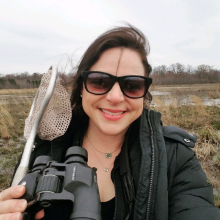 Sep 17 Graduate Fair Expo Sep 17, 2024 4:00 – 6:00 pm STEM EducationThe MS in Science, Technology, Engineering and Mathematics (STEM) Education prepares students for careers as researchers and educators who will contribute to improving STEM education. STEM Education is an interdisciplinary program that involves collaborations with the Tufts departments of Child Study and Human Development, Sociology, Biology, Chemistry, Mathematics, and Physics & Astronomy, as well as Chemical and Biological Engineering, Civil and Environmental Engineering, Computer Science, and Mechanical Engineering. Faculty and students in STEM Education also work with the Institute for Research on Learning and Instruction (IRLI) and the Center for Engineering Education and Outreach (CEEO). Program OutcomesAs a student in the program, you'll develop a deep understanding of the theory and research on learning, development, and teaching; cognitive science; and the sociocultural foundations of education. As you work on research alongside faculty and peers, you'll also grow your skills in research methods that will help you contribute to new theoretical insights and practical approaches to education. You'll also learn to communicate and disseminate your research through different mediums. Alumni of the MS in STEM Education work on the development and implementation of research, curriculum materials, and educational activities in settings such as schools, research centers, museums, industry, cultural institutions, and community agencies. Graduates are also well prepared to go on to further graduate studies in doctoral programs. Application RequirementsWe strongly recommend that applicants explore current faculty research and reach out to potential mentors and the Program Director prior to submitting an application. - Application fee
- Personal statement - Tell us about what motivates you to study STEM Education at Tufts. Describe experiences, research questions or dilemmas that have motivated you to pursue further study in STEM Education. Your personal statement should be between 1500-2500 words.
- Writing Sample - Where the personal statement is about your motivations, this should be a sample of your scholarly writing about a topic in STEM Education, citing references from relevant literature. The writing sample could be: a paper you have written for a prior course in STEM education; a research paper you have written for publication; a proposal for research that you are interested to study.
- Official TOEFL, IELTS, or Duolingo English Test, if applicable
- Transcripts
- Three letters of recommendation
Tuition and Financial AidSee Tuition and Financial Aid information for GSAS Programs. Note: This program is eligible for federal loans and Tufts tuition scholarships. Director's MessageCareer outcomes. 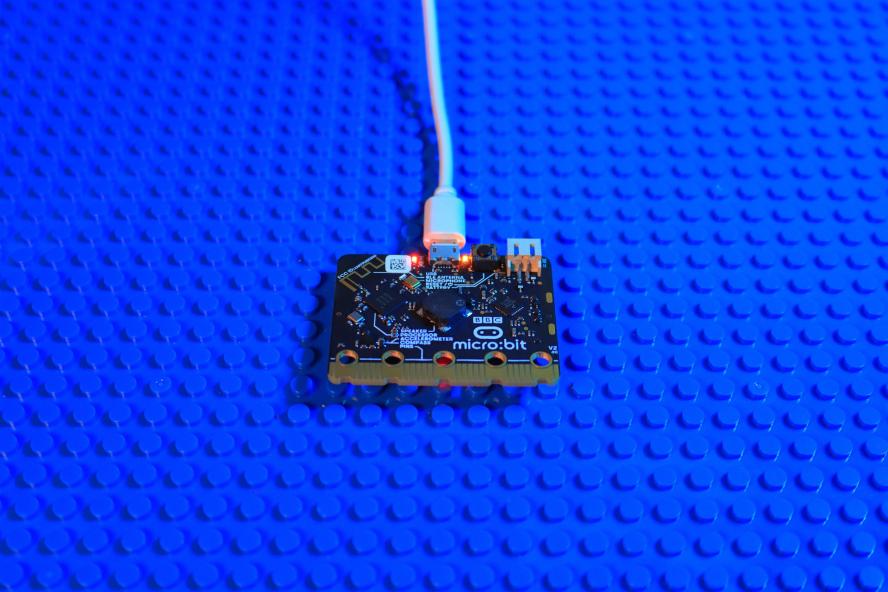 Average Age: 26 *Sources: GSAS-SOE Graduate Exit Survey 2020 - 2021 and Academic Analytics (Alumni Insights) 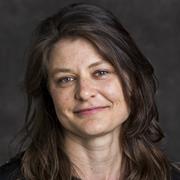 Julia Gouvea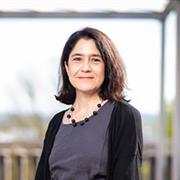 Bárbara M. Brizuela Ira Caspari-GnannResearch/Areas of Interest: Chemistry and STEM Education. In order to understand how and why successful teaching and learning of chemistry at the university level works, the Caspari research group focuses on analyzing students', teaching assistants' (TA), learning assistants' (LA), and instructors' reasoning, interactions, and culture. The group collects video data of classroom practices and conducts qualitative research interviews with instructors, TAs, LAs, and students to better understand how certain interactions and ways of reasoning lead to student sense making and learning. While zooming in and investigating how students connect aspects of chemistry, the group also zooms out and investigates classroom culture and how individual interactions and personal experiences integrate into larger systems of teaching and learning. The group uses this fundamental research as a theoretical basis for implementing teaching innovations and designing training opportunities in order to promote supportive learning environments for students that value and encourage their unique ways of being, knowing and doing.  Brian GravelResearch/Areas of Interest: Brian's research focuses on students' representational practices in science and engineering studied using design-based research on learning technologies and socio-technical learning environments. This work builds from the development of SAM Animation, which is stop-motion animation software developed at the Center for Engineering Education and Outreach. Brian co-developed SiMSAM: a multi-representational toolkit to support creative computational modeling activities for middle grades learners. Curious about design, play, and making, his work involves partnerships with researchers and educators to explore dimensions of STEM learning at the intersections of people, materials, representations, and cultures. One such example is starting Nedlam's Workshop in 2014, a makerspace in an urban high school that emphasizes multidisciplinary inquiry. Through this work, he developed both empirical and theoretical contributions focused on heterogeneous design, STEM literacies in making, and analyses of how communities of makers organize to support each other's practices. Collectively, his research complicates and expands the field's understandings of how inquiry unfolds in making contexts, and how makerspaces can be a site for equitable and dignified participation in STEM. Brian's newer work involves teachers engaging in playful computational making to study how they (re)negotiate relationships to inquiry, disciplines, computational tools, and heterogeneous ways of knowing. This includes the exploration of geographies of care and responsibility that support STEM learning environments that center wellbeing. His scholarship examines the many facets of making and making spaces in schools, both in the United States and abroad. Brian's collaborative research has been funded by the National Science Foundation, the LEGO Foundation, and the Spencer Foundation. Selected Publications Gravel, B. E., & Puckett, C. (2023). What shapes implementation of a school-based makerspace? Teachers as multilevel actors in STEM reforms. International Journal of STEM Education. https://doi.org/10.1186/s40594-023-00395-x Gravel, B. E., & Svihla, V. (2021). Fostering heterogeneous engineering through whole-class design work. Journal of the Learning Sciences, 30(2), 279–329. https://doi.org/10.1080/10508406.2020.1843465 Gravel, B. E., Tucker-Raymond, E., Wagh, A., Klimczak, S., & Wilson, N. (2021). More than mechanisms: Shifting ideologies for asset-based learning in engineering education. Journal of Pre-College Engineering Education Research 11(1), 276–297. https://doi.org/10.7771/2157-9288.1286 Tucker-Raymond, E., & Gravel, B. E. (2019). STEM literacies in makerspaces: Implications for learning, teaching, and research. Routledge. 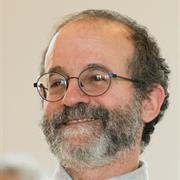 David HammerResearch/Areas of Interest: Research on learning and instruction. My research is on learning and teaching in STEM fields (mostly physics) across ages from young children through adults. Much of my focus has been on intuitive "epistemologies," how instructors interpret and respond to student thinking, and resource-based models of knowledge and reasoning.  Trevion HendersonResearch/Areas of Interest: Engineering education; Diversity, equity, and inclusion; team-based engineering pedagogies; engineering design thinking  Andrew IzsakResearch/Areas of Interest: The psychology of mathematical thinking, teachers' and students' understanding and use of inscriptions, multiplicative reasoning, applications of psychometric modeling for assessment and research in mathematics education.  Milo KoretskyResearch/Areas of Interest: engineering education research, learning and engagement in the university classroom, development of disciplinary practices, instructional design and technology development, instructional practices, organizational change, social practice theory  Greses PérezResearch/Areas of Interest: cognition and learning sciences, science education, engineering education, diversity and identity, technology and education, language and cognition, multicompetence  Kristen WendellResearch/Areas of Interest: learning sciences, engineering education, design practices, classroom discourse, engineering knowledge construction Related ProgramsElementary stem, educational studies, museum education, school psychology, middle and high school education, physics: physics education.  Departments- Applied Physics
- Biomedical Engineering
- Center for Urban Science and Progress
- Chemical and Biomolecular Engineering
- Civil and Urban Engineering
- Computer Science and Engineering
- Electrical and Computer Engineering
- Finance and Risk Engineering
- Mathematics
- Mechanical and Aerospace Engineering
- Technology, Culture and Society
- Technology Management and Innovation
Degrees & Programs- Bachelor of Science
- Master of Science
- Doctor of Philosophy
- Digital Learning
- Certificate Programs
- NYU Tandon Bridge
- Undergraduate
- Records & Registration
- Digital Learning Services
- Teaching Innovation
- Explore NYU Tandon
- Year in Review
- Strategic Plan
- Diversity & Inclusion
News & EventsLooking for News or Events ? Press Release Democratizing chip design with Chips4AllNYU Tandon's new initiative, part of the National Science Foundation’s prestigious Research Traineeship program, will expand microchip design education across many of NYU’s STEM doctoral and master’s degree programs NYU Tandon School of Engineering is spearheading a novel initiative aimed at expanding access to semiconductor design education, supporting key objectives of the bipartisan CHIPS and Science Act and bolstering NYU's growing prominence in chip design. "Chips4All" is a new comprehensive training program for NYU doctoral and master’s students in STEM (Science, Technology, Engineering and Math) fields, to learn chip design regardless of their engineering background. The National Science Foundation (NSF) selected Chips4All for its highly competitive Research Traineeship (NRT) program , which supports initiatives for research-based master’s and doctoral degree programs to develop the skills, knowledge, and competencies needed to pursue a range of STEM careers. Chip4All will train participants to design Application-Specific Integrated Circuits (ASICs), chips tailored for specialized tasks rather than general-purpose computing. These custom chips are vital for jump-starting progress in a range of fields, from biomedical devices to cryptography and computational biophysics, with the potential to advance multiple industries and scientific disciplines. "For too long, chip design has been the domain of a relatively small number of computer engineering specialists who have the access and skills to use the advanced tools needed," said Siddharth Garg , Institute Associate Professor in NYU Tandon’s Electrical and Computer Engineering (ECE) Department and a member of NYU WIRELESS . Garg is Chips4All’s Principal Investigator (PI). "With Chips4All, we want to break down barriers to entry, empowering researchers from diverse backgrounds with these crucial skills. This democratization aligns perfectly with the CHIPS Act's vision of fostering a robust, diverse semiconductor talent pool in America, and unleashing innovation and entrepreneurship across numerous chip-dependent industries." The five-year Chips4All program will bring together NYU doctoral and master’s students from a range of STEM disciplines — including those in medicine, chemistry, and computer science — with hardware-focused engineering students, primarily from NYU Tandon’s Electrical and Computer Engineering Department. The domain-specific students complete courses in hardware design while the hardware-focused students take courses in their counterparts’ STEM subjects. Ultimately, trainees from the two groups team up for a Hardware Prototyping Capstone, creating prototypes of chips they design for domain-specific purposes, which could include gene sequencing, new cryptographic protocols, and other transformative applications. To support this hands-on learning, NYU is establishing a Silicon Makerspace, providing access to cutting-edge chip design tools and fabrication resources for all NYU students, faculty, and staff. Also under the Chips4All umbrella, NYU will host a Brooklyn Chips Summit (BRICS), organized as a three-day event featuring talks by leading experts in chip design, seminars, and panels open to the general public. As microchips become increasingly specialized, the ability to rapidly scale their design and production emerges as a critical bottleneck for innovators across research, entrepreneurship, and industry. Chips4All aims to remove this roadblock and create a replicable model for cross-disciplinary hardware education in the United States. “Chips4All is yet another powerful example of how NYU has embraced the national call to action from the Chips and Science Act,” said Nina Gray, Associate Vice Provost for Research Planning and Analysis at NYU. “Our researchers are bringing their expertise to bear to advance the semiconductor industry in our region through new educational and workforce development programs as well as new technologies, such as advanced cellular service and new nanofabrication facilities . Through our partnerships with consortia such as NORDTECH and the Mid Atlantic Semiconductor Hub, we will continue to pursue pathways for our discovery, innovation, and education to benefit the nation’s semiconductor ecosystem.” Chips4All joins another NSF-funded project that NYU Tandon is launching to expand access to chip design training. BASICS — which the NSF selected for its latest Experiential Learning for Emerging and Novel Technologies (ExLENT) investment — is a new 28-week self-paced online course for non-STEM professionals to learn chip design fundamentals, so they can pivot into key and emerging technological careers. The launch of both Chips4All and BASICS adds to NYU Tandon’s efforts to democratize chip design, most notably with its recent high-profile Chip Chat project that led to the world’s first chip designed through natural-language conversations with a Large Language Model AI platform. NYU plans to train 308 graduate students, including 58 PhD candidates, via Chips4All, starting in Spring 2025. Joining Garg on the Chips4All NRT are its co-PIs: Tamar Schlick, Professor of Chemistry, Mathematics and Computer Science at NYU Arts & Science; Vivek Srinivasan, Associate Professor in the Department of Ophthalmology and Associate Professor in the Department of Radiology at NYU Grossman School of Medicine; Anirudh Sivaraman Kaushalram, Assistant Professor of Computer Science at NYU Courant Institute; and Patricia Satterstrom, Assistant Professor of Public Service at NYU Wagner Graduate School of Public Service. The project’s Senior Persons are: Austin Rovinski , Assistant Professor in NYU Tandon’s ECE Department; Brandon Reagen , Assistant Professor in NYU Tandon’s ECE Department and in its Computer Science and Engineering Department; Ramesh Karri , NYU Tandon ECE Department Chair and Co-Founder of NYU Center for Cybersecurity ; and Yao Wang , Professor in NYU Tandon’s ECE Department and in its Biomedical Engineering Department and a member of NYU WIRELESS. More to Read Nialah Wilson-Small named in the Forbes “30 under 30” list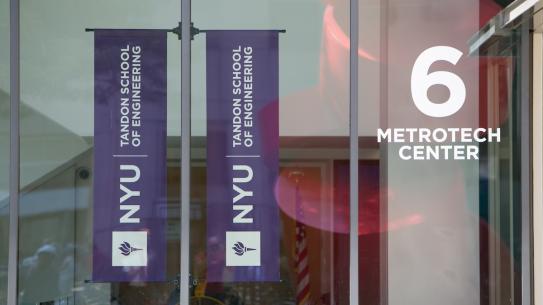 2024 Tandon Faculty Awards Innovate UK, the Urban Future Lab, and Greentown Labs announce the Year 5 cohort for their Global Incubator Programme +7-915-706-36-32 [email protected]  - About Russia
- Universities
- Specialties
- Apply Online
 Moscow State Institute of Electronic Technology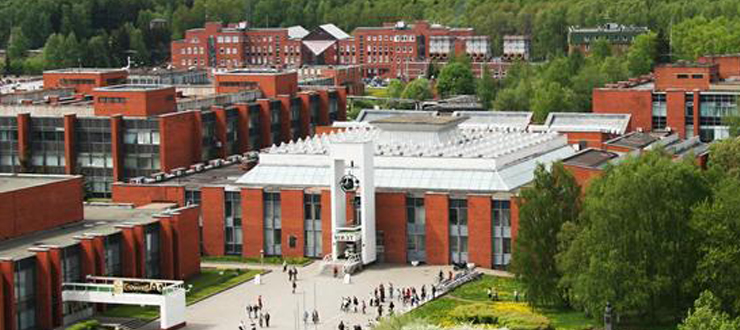 Today MIET is a leading educational center of Russia in the sphere of training of specialists in the field of high technologies. The University has 13 faculties, 35 primary and 20 base (at the leading enterprises of electronics) departments, postgraduate and doctoral studies, Moscow Regional Center of New Information Technologies. The university works 650 researchers and teachers, including 3 Academicians and 3 Corresponding Members of the Russian Academy of Sciences, 130 professors and doctors of sciences, 340 candidates of sciences, associate professors, 6500 students enrolled, more than 320 graduate and doctoral students. The University provides training in 25 profiles of undergraduate and 30 master's educational programs. In recent years MIET open these new educational programs as "Nanotechnology in Electronics", "Microsystem Technology", "Telecommunications", "Secure Communication Systems", "Quality Management", "Translation Studies", "Design" and others, implemented a program of elite training in the field of high technologies with the involvement of leading foreign companies, in particular, Synopsys, Cadence, Motorola, and others, founded the College of electronics and Computer Science, where specialists are trained in the program of secondary vocational education for enterprises of Zelenograd. Developing new areas of training MIET retains this status of Technical University. Recent years, the official rating of the Ministry of Education University consistently ranks in the top five among the 160 technical universities in the country. In 2006, MIET is among the first 17 universities - winners of the national project "Education", introducing innovative educational programs. MIET cooperates with leading universities in Europe, Asia and the United States, participating in student exchange programs, graduate students, teachers. The university regularly lectures of famous foreign professors and representatives of major international companies. Individual courses for undergraduates are taught in English by invited foreign lecturers. For university studies, please contact  | |

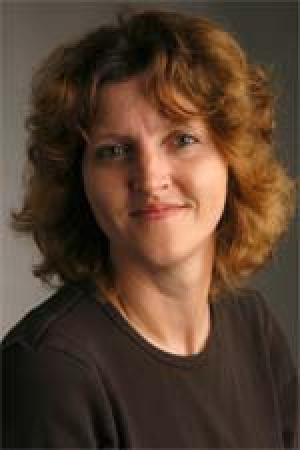
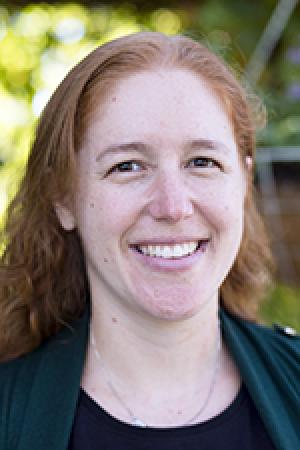

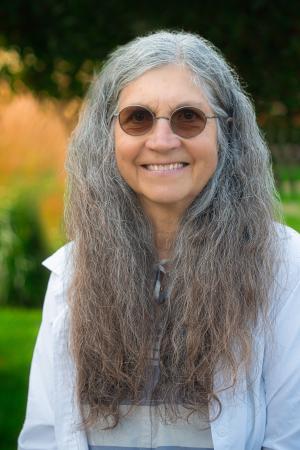

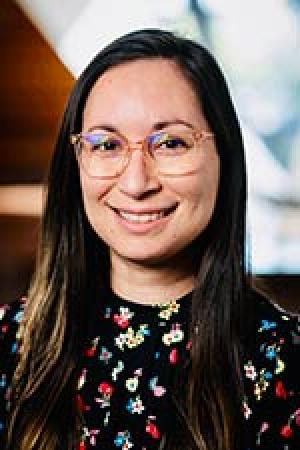
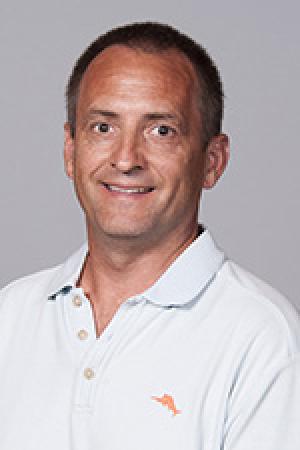

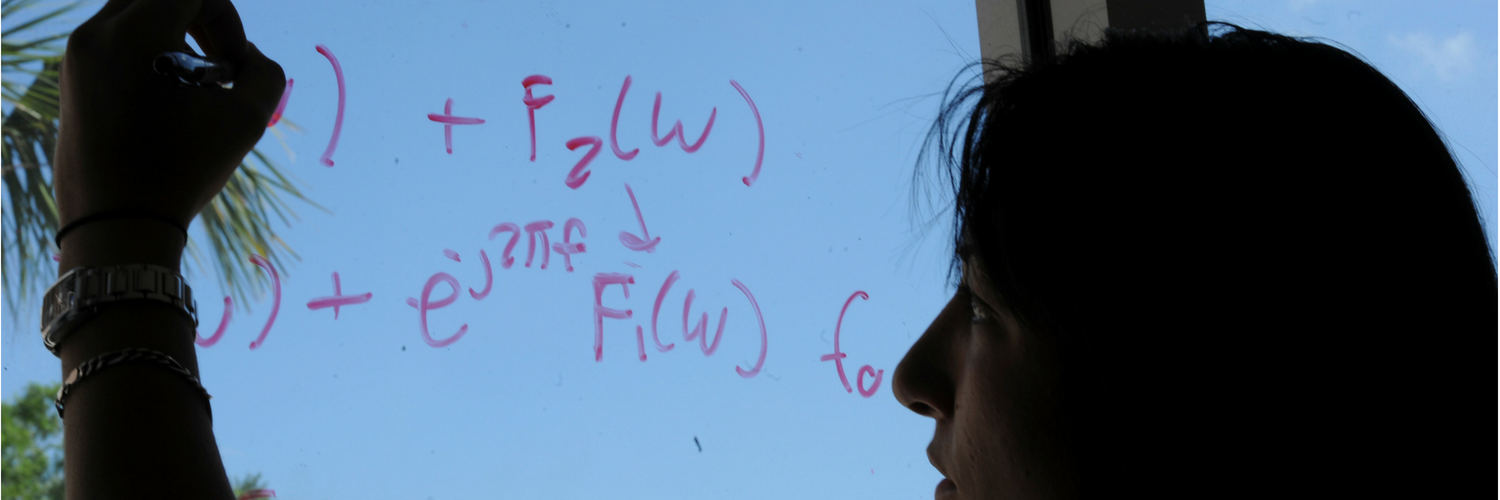




























































IMAGES
VIDEO
COMMENTS
Learn how to pursue a Ph.D. in STEM Education at UT Austin, a research-focused program that examines how people learn and teach STEM subjects. Find out the admission requirements, coursework, faculty, and research topics for this degree.
Learn how to advance knowledge in STEM Education through original research and pursue a career as a researcher or educator. The program offers full tuition support, interdisciplinary courses, and collaborative opportunities with faculty and other departments.
Learn about the interdisciplinary PhD in STEM education, which offers four specializations: science, mathematics, engineering, and agriculture. Explore the curriculum, research opportunities, and career outcomes of this program.
The PhD program in STEM Education is designed to emphasize coursework and research; unlike Bachelor's and Master's degrees, it does not include an internship opportunity. However, courses in educational theories, research, and statistics engage students in projects, and these can be as real-world as students wish. ...
The STEM Education PhD program at UMass Dartmouth helps address the national shortage of essential STEM educators and the need for better STEM education teaching practices. Doctoral students gain in-depth knowledge, robust interdisciplinary research skills, and a variety of practical experiences.
The PhD in Science, Technology, Engineering and Mathematics (STEM) Education prepares students for careers as researchers and educators who will contribute to improving STEM education.. STEM Education is an interdisciplinary program that involves collaborations with the Tufts departments of Child Study and Human Development, Sociology, Biology, Chemistry, Mathematics, and Physics & Astronomy ...
The Education Sciences Interdisciplinary Ph.D. with an emphasis in STEM Education is an intensive program designed to prepare future researchers, teacher educators, and researcher-practitioners to meet the national call for more individuals with heightened scholarly expertise in STEM Education. Delivery Method: Hybrid on-campus and online.
The Ph.D. in STEM Education prepares you at an advanced level to work in the professorial ranks of higher education or assume positions of leadership in schools and agencies. The degree provides rich preparation by exposing you to a wide variety of courses and experiences related to fundamental ...
305-284-2167. [email protected]. Science, Technology, Engineering and Mathematics (STEM). Situated in South Florida, home to one of the highest numbers of foreign-born residents in the world, TAL's doctoral degree (Ph.D.) program specializing in STEM education at the University of Miami features a diverse group of core and ...
The STEM Education PhD program helps address the national shortage of essential STEM educators and the need for better STEM education teaching practices.. Doctoral students gain in-depth knowledge, robust interdisciplinary research skills, and a variety of practical experiences. The STEM Education PhD is currently offering concentrations in mathematics education and science education.
We warmly invite you to apply for the Doctoral Mentorship Pathway Program for 2024-25. This program is designed to create a pathway for historically underrepresented and marginalized education scholars and practitioners who are considering doctoral studies in Fall 2025.
Program The Ph.D. Program in STEM Education at Stony Brook offers a rigorous program of graduate study emphasizing core knowledge from the traditional field of Science Education as well as the emerging fields of Discipline-Based Educational Research (DBER) and the Learning Sciences.
The STEM Education PhD program helps address the national shortage of essential STEM educators and the need for better STEM education teaching practices.. Doctoral students gain in-depth knowledge, robust interdisciplinary research skills, and a variety of practical experiences. The STEM Education PhD is currently offering concentrations in mathematics education and science education.
Mathematics Education (Mathematics and Statistics - Grades 9-20) Ph.D. / Full-time / On Campus. 12,189 EUR / year. 10 years. Arizona State University Tempe, Arizona, United States. Ranked top 1%.
The Center for STEM Education provides masters and doctoral level programs in STEM Education, as well as a new graduate certificate option. Our students learn to conduct empirical research studies examining a variety of areas including but not limited to K12 STEM classroom practices, teacher development, STEM learning and student success ...
This PhD in Technology Concentration focuses specifically on Science, Technology, Engineering and Mathematics (STEM) integration through design, leadership, and research. Graduates of the STEM Education Leadership program will be prepared to become leaders in integrated STEM in a variety of positions including university professors, K-12 ...
It Stems from Algebra: Professor Chris Dede and Assistant Professor Jon Star. In their new research project, Professor Chris Dede and Assistant Professor Jon Star are using three technology-based activities, all rooted in algebra, once called the "new civil right" by one algebra advocate. 1. 2.
Option 1 (with teacher leadership electives): 30 credit hours of approved graduate-level coursework, including a STEM Education Leadership core (12 credit hours), content electives (12 credit hours), and additional teacher leadership electives (six credit hours). Students completing this program will be eligible to apply for a Kentucky Rank II ...
EKU is a nationally recognized leader in online and graduate education, and you can be confident in your choice to further your education with us. Professors are experts in their fields and are passionate about your success; A network of high-achieving alumni; Increased salary and promotion potential; Regionally accredited
The exciting and timely discipline called Educational Neuroscience provides an important level of analysis for addressing today's core problems in education. Advanced doctoral students in Gallaudet University's PhD Program in Educational Neuroscience (PEN) have studied the empirical foundations and methods from which the discipline draws its ...
The Graduate Research Fellowship Program (GRFP) is a National Science Foundation-wide program that provides Fellowships to individuals selected early in their graduate careers based on their demonstrated potential for significant research achievements in science, technology, engineering or mathematics (STEM) or in STEM education.
The highly ranked Curriculum and Instruction - Teacher Leadership Emphasis: STEM Specialization, Master of Education (M.Ed.) program allows in-service elementary and middle school teachers to explore relationships among science, engineering and mathematics through a transdisciplinary approach to integrated STEM. Teachers in the program utilize advanced technology and innovative tools to create ...
Alumni of the MS in STEM Education work on the development and implementation of research, curriculum materials, and educational activities in settings such as schools, research centers, museums, industry, cultural institutions, and community agencies. Graduates are also well prepared to go on to further graduate studies in doctoral programs.
Russian-language post-graduate programs. Summer School. Departments. Education system. Preparatory course. RESEARCH Research. RI of Nanotechnologies. RI of Computing and Control Systems. Journal "Proceedings of universities. Electronics" ... Vice-Rector for Education. Tel. +7 (499) 720-87-00. [email protected]
Russian-language post-graduate programs. Summer School. Departments. Education system. Preparatory course. RESEARCH Research. RI of Nanotechnologies. RI of Computing and Control Systems. Journal "Proceedings of universities. Electronics" ... Vice-Rector for Education. Tel. +7 (499) 720-87-00. [email protected]
Russian-language post-graduate programs. Summer School. Departments. Education system. Preparatory course. RESEARCH Research. RI of Nanotechnologies. RI of Computing and Control Systems. Journal "Proceedings of universities. Electronics" ... Vice-Rector for Education. Tel. +7 (499) 720-87-00. [email protected]
NYU Tandon School of Engineering is spearheading a novel initiative aimed at expanding access to semiconductor design education, supporting key objectives of the bipartisan CHIPS and Science Act and bolstering NYU's growing prominence in chip design. "Chips4All" is a new comprehensive training program for NYU doctoral and master's students in STEM (Science, Technology, Engineering and Math ...
In 2006, MIET is among the first 17 universities - winners of the national project "Education", introducing innovative educational programs. MIET cooperates with leading universities in Europe, Asia and the United States, participating in student exchange programs, graduate students, teachers.